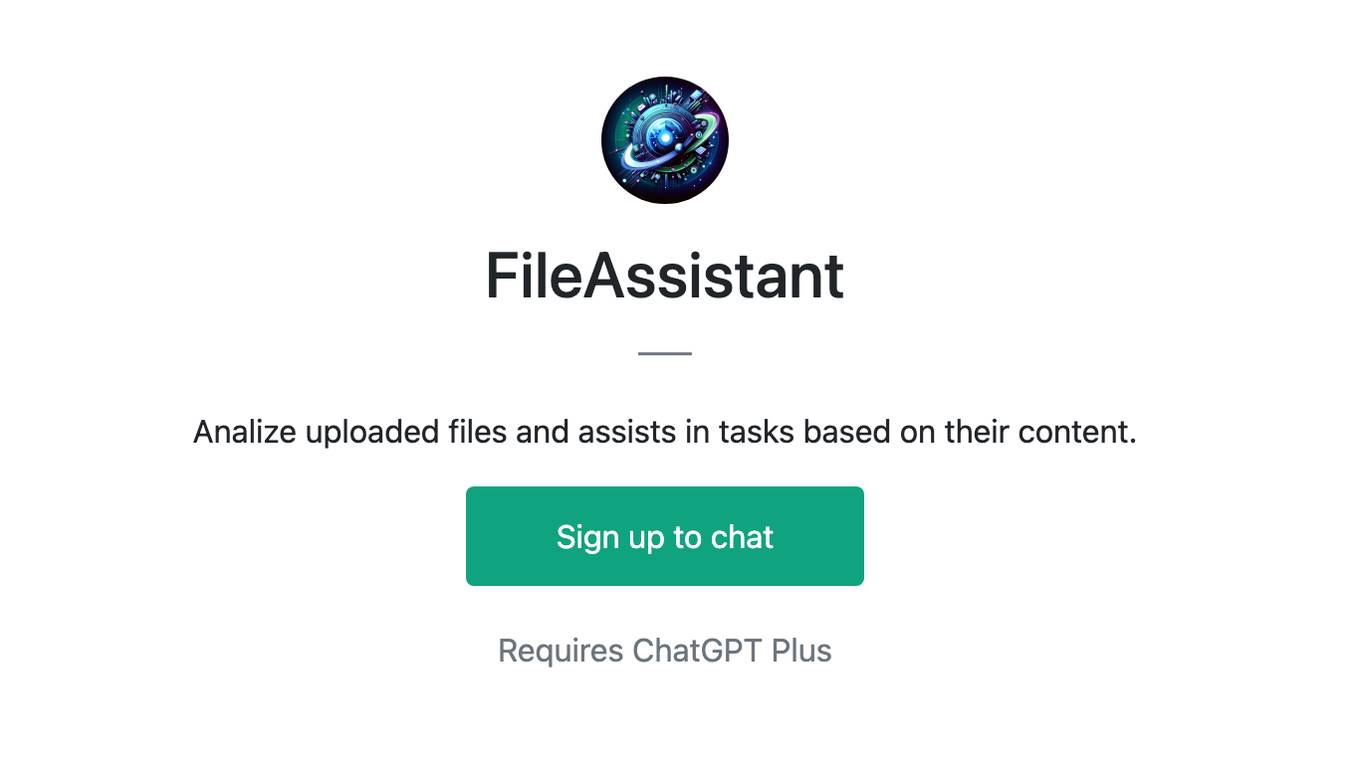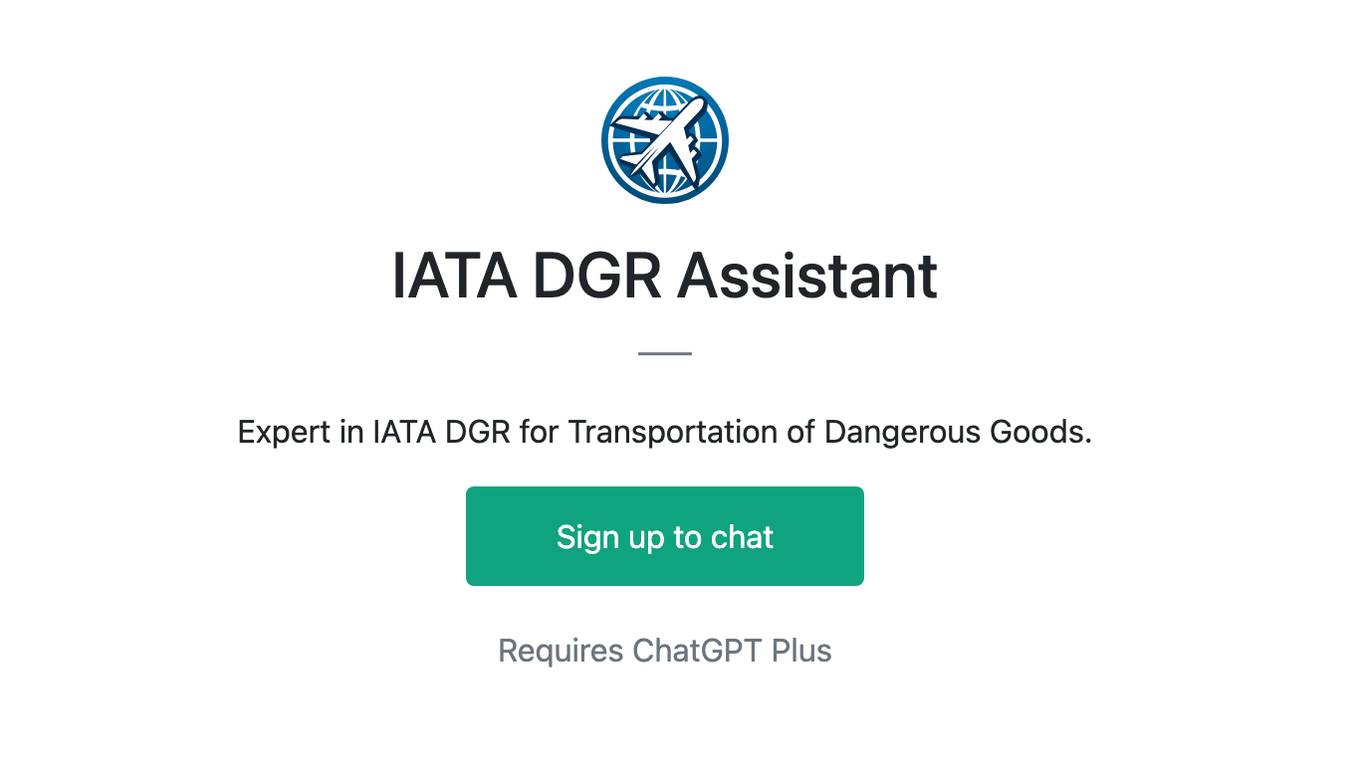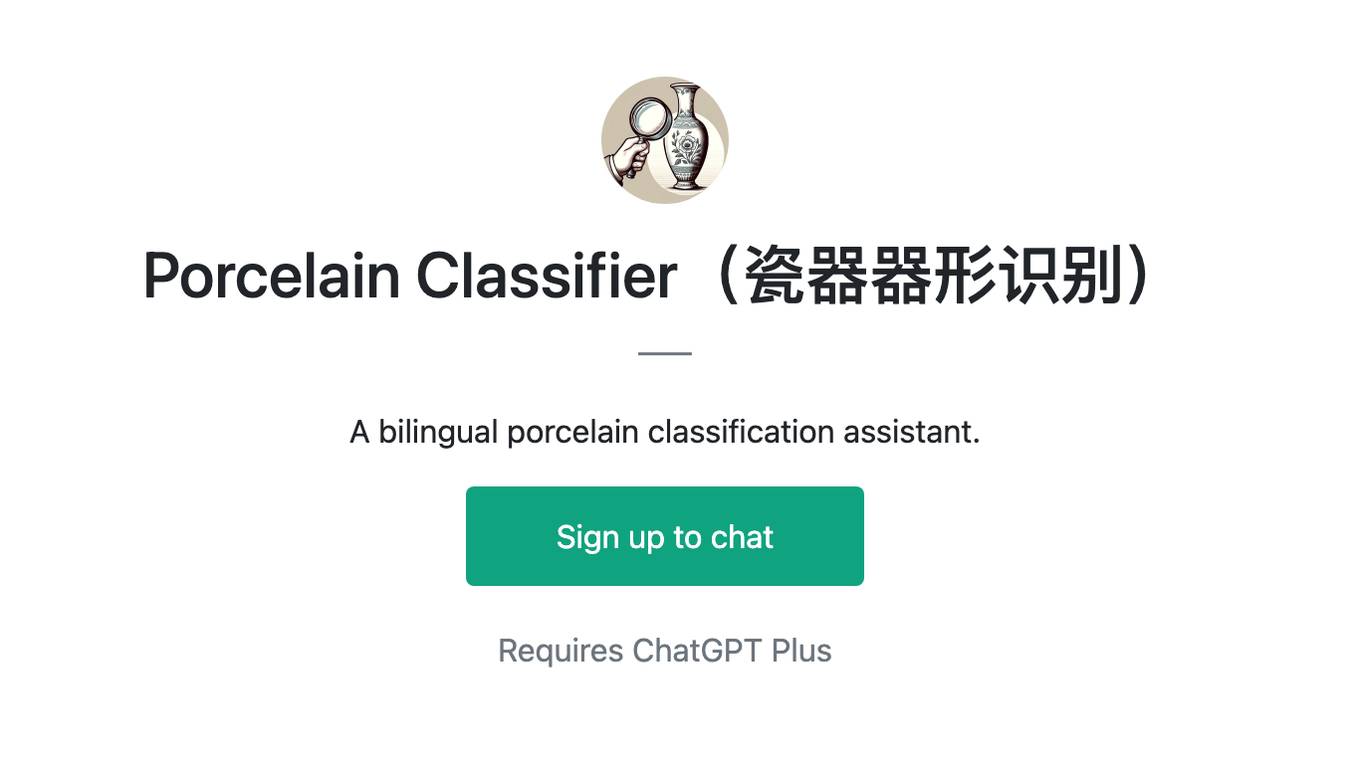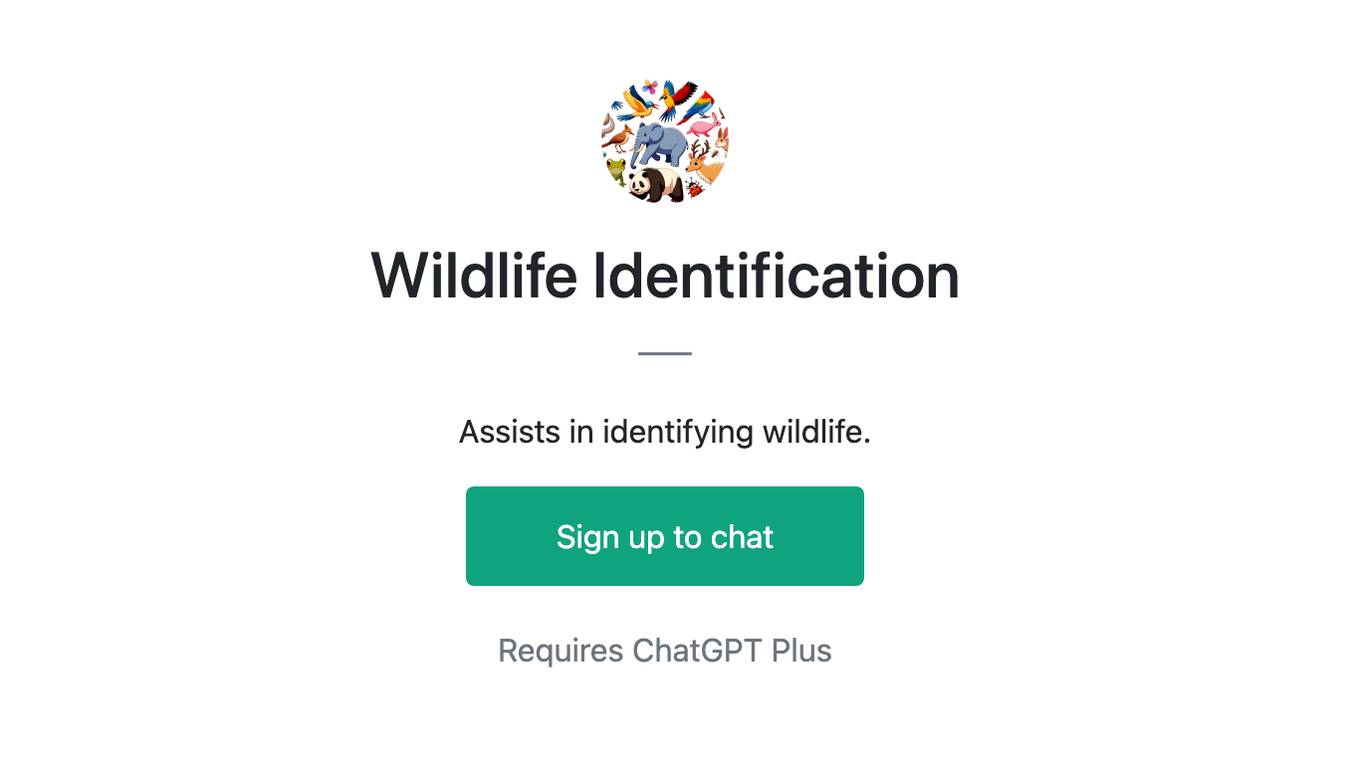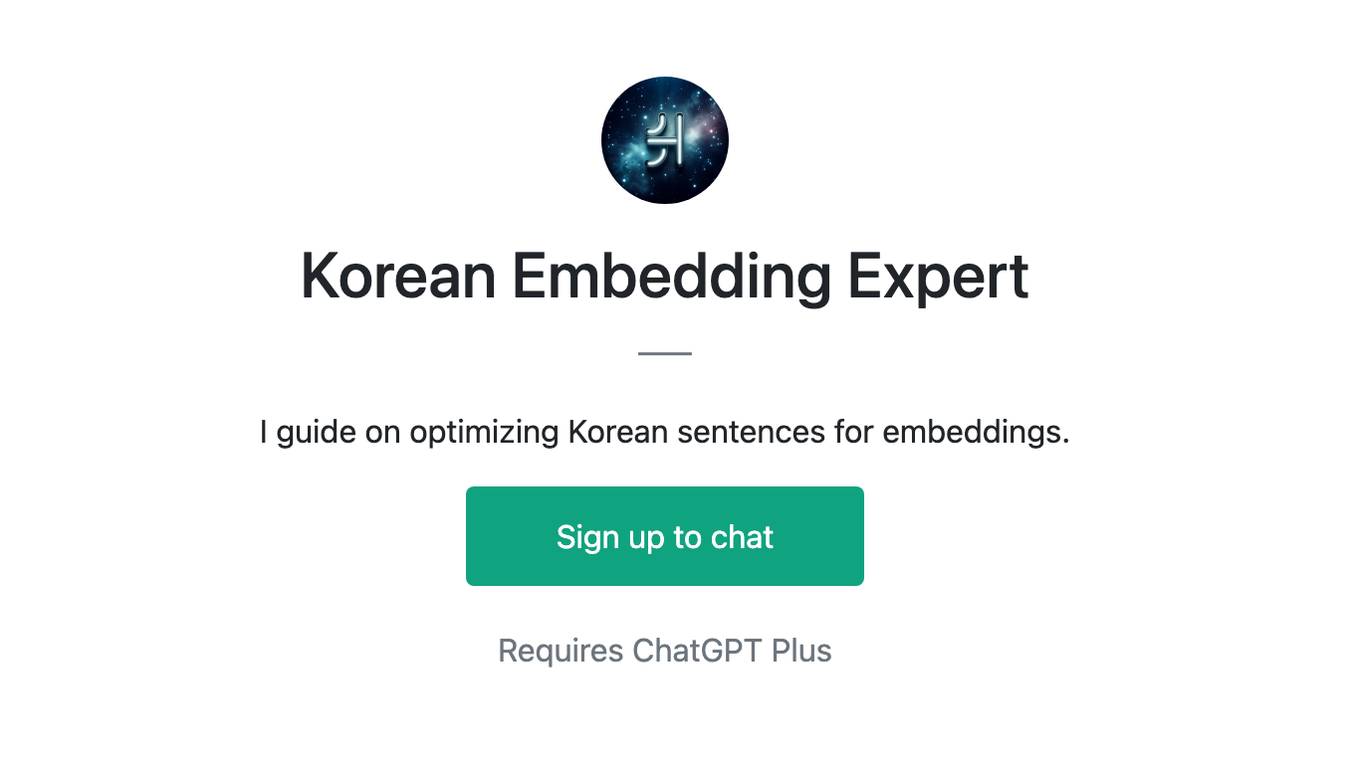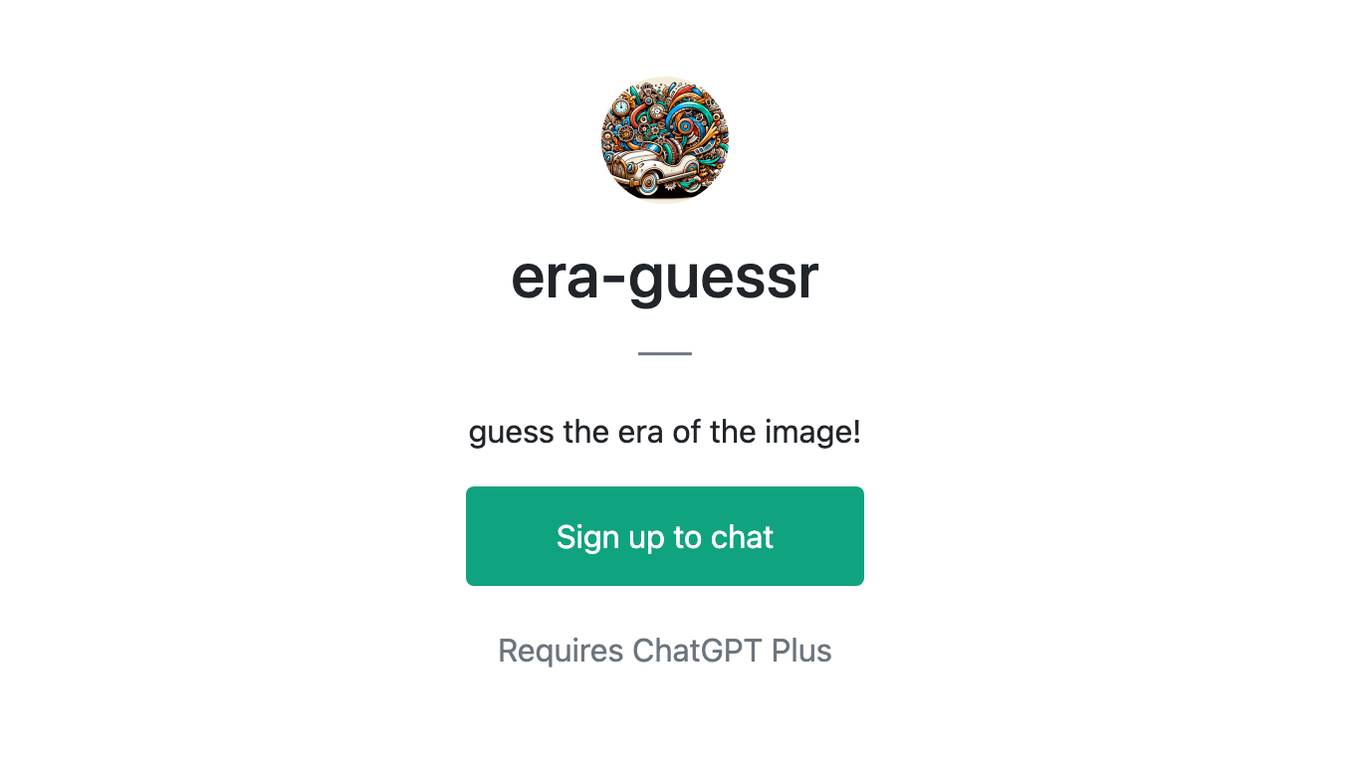Best AI tools for< Classify Content >
20 - AI tool Sites
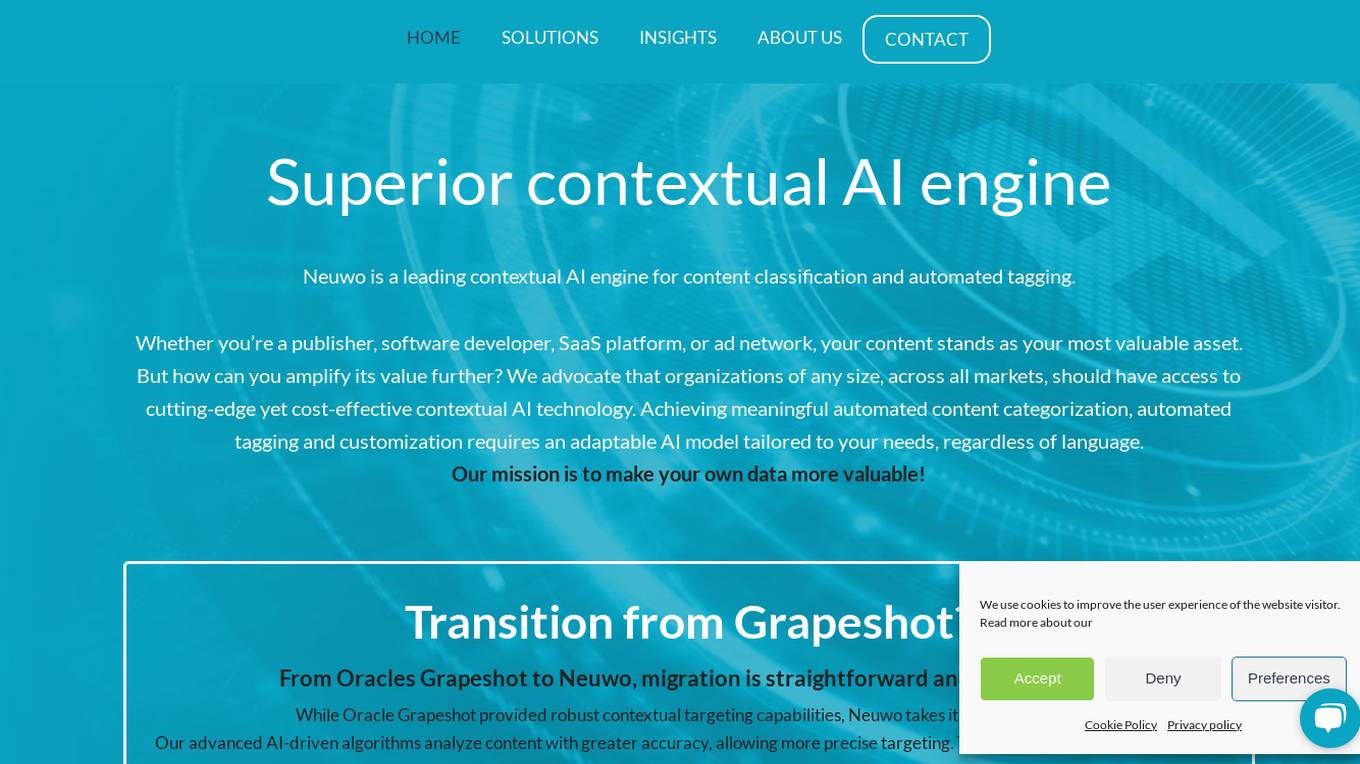
Neuwo
Neuwo is a leading contextual AI engine for content classification and automated tagging. It advocates that organizations of any size should have access to cutting-edge yet cost-effective contextual AI technology for meaningful automated content categorization and customization. The platform enables users to transition seamlessly from Oracle Grapeshot to Neuwo, offering advanced AI-driven algorithms for more precise targeting and increased engagement. Neuwo's technology ensures reaching the right audience at the right time, without the need for contracts. The platform enriches valuable data through intelligent content processing, brand safety, and suitability, and content activation, adding value to digital properties and businesses.
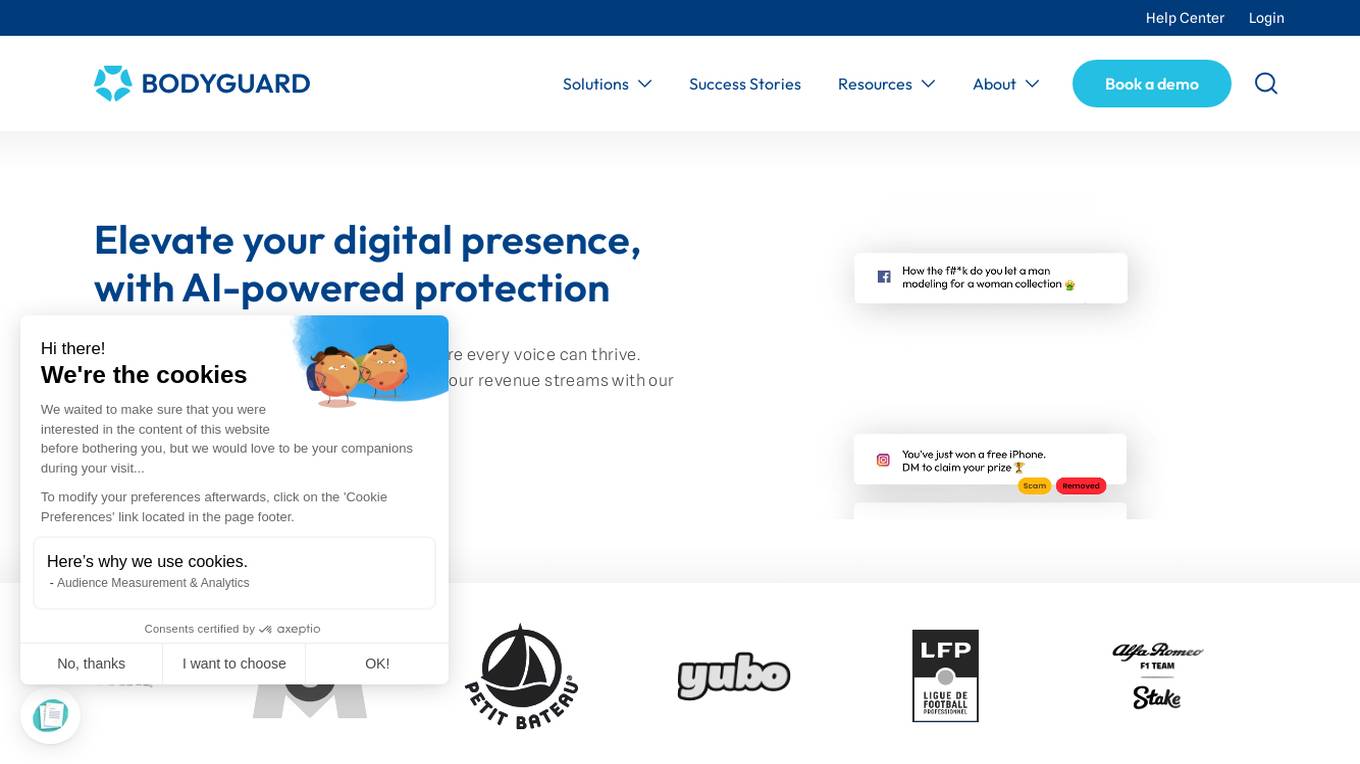
Bodyguard.ai
Bodyguard.ai is an AI-powered social media monitoring and moderation solution that helps create a safe and dynamic online community. It safeguards brand reputation, protects revenue streams, and ensures safety, inclusivity, and seamless management of online spaces. With advanced AI technology, Bodyguard excels in threat monitoring, community protection, and audience understanding, making it a trusted shield for businesses across various industries.
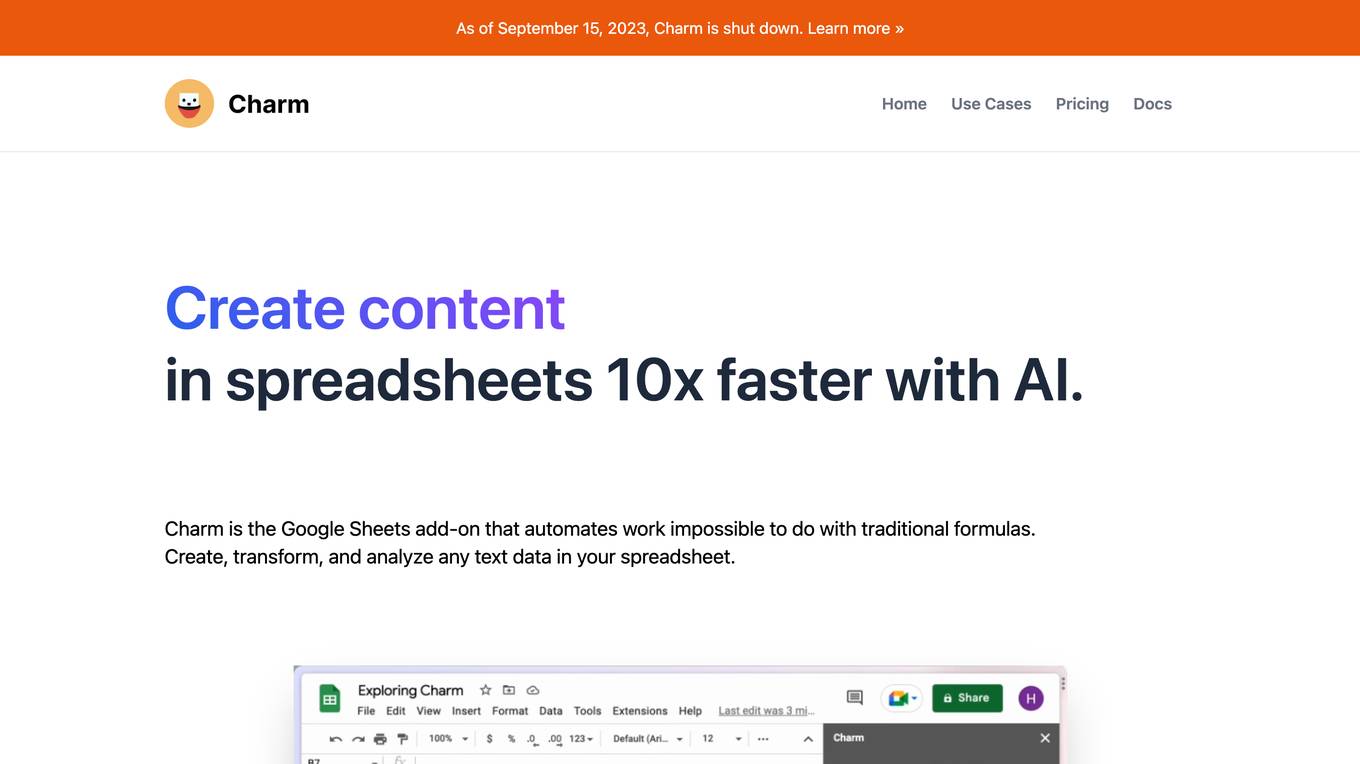
Charm
Charm is an AI-powered spreadsheet assistant that helps users clean messy data, create content, summarize feedback, classify sales leads, and generate dummy data. It is a Google Sheets add-on that automates tasks that are impossible to do with traditional formulas. Charm is used by hundreds of analysts, marketers, product managers, and more.
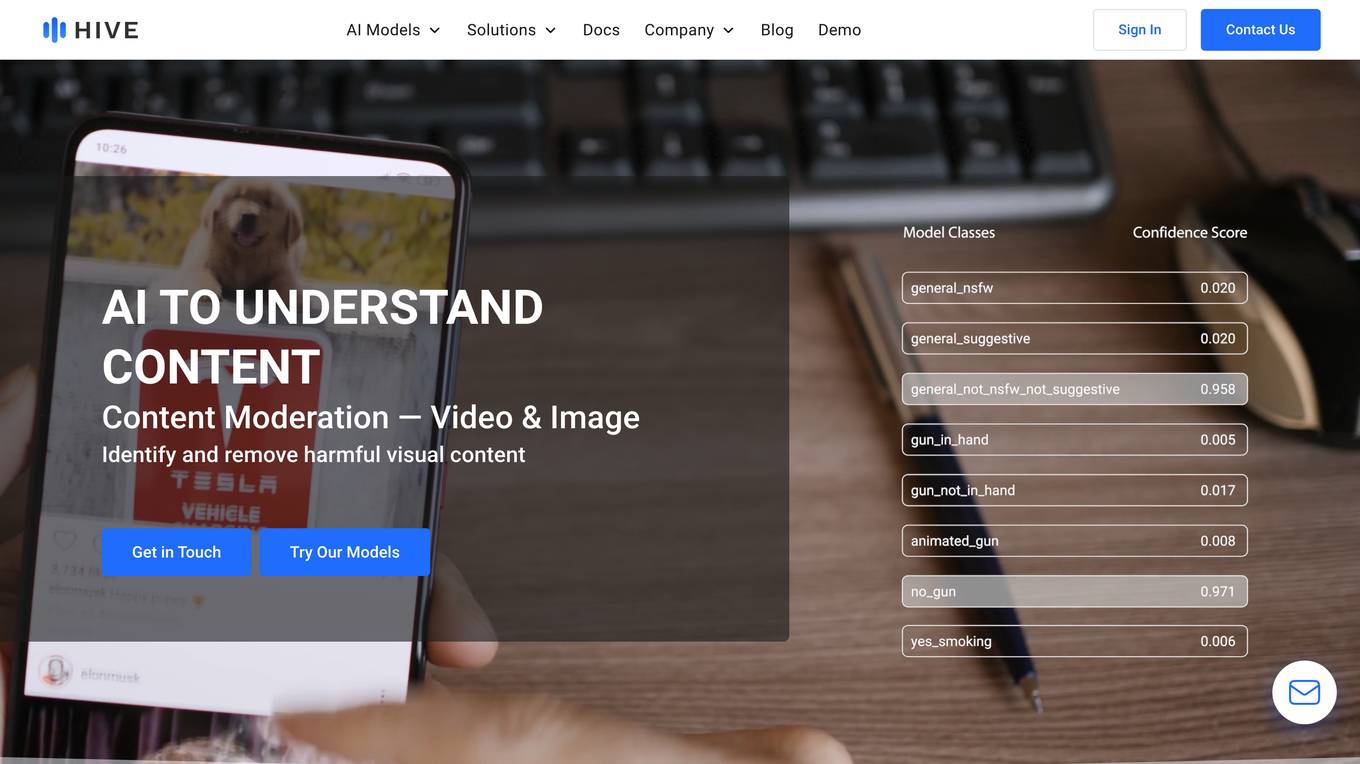
Hive AI
Hive AI provides a suite of AI models and solutions for understanding, searching, and generating content. Their AI models can be integrated into applications via APIs, enabling developers to add advanced content understanding capabilities to their products. Hive AI's solutions are used by businesses in various industries, including digital platforms, sports, media, and marketing, to streamline content moderation, automate image search and authentication, measure sponsorships, and monetize ad inventory.
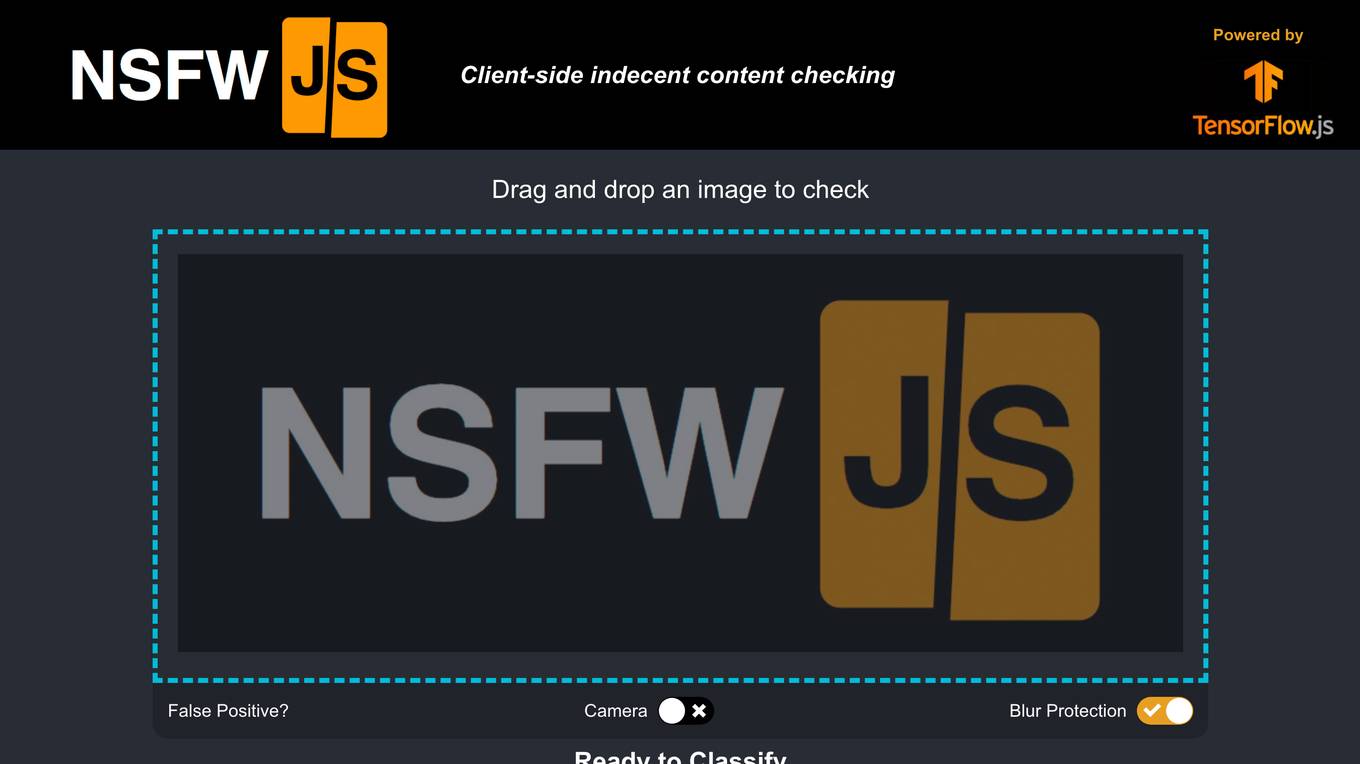
NSFW JS
NSFW JS is an AI tool designed for client-side indecent content checking. It allows users to drag and drop an image for analysis, providing false positive detection and camera blur protection. The tool is currently using a model that boasts 93% accuracy and is developed by Infinite Red, Inc. Users can access the tool via the NSFW.js website or its Github repository, and a mobile demo is also available.
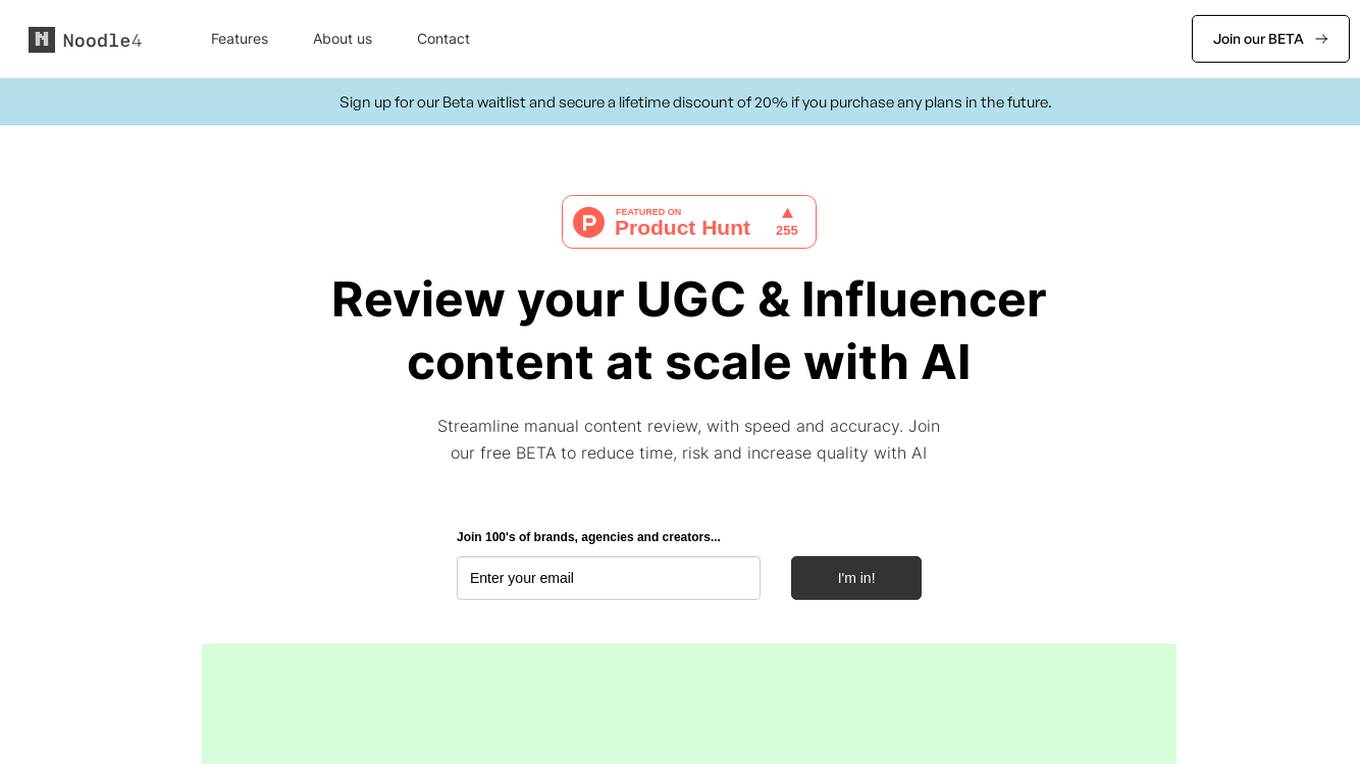
Noodle4
Noodle4 is an AI-powered platform designed for content review of User-Generated Content (UGC) and Influencer content. It offers advanced AI models that streamline manual content review processes with speed and accuracy. Noodle4 helps users to ensure that their content aligns with brand guidelines, briefs, ad compliance, and product classification. The platform allows for cross-referencing of audio, video, text, and images, making content review efficient and precise. Noodle4 also facilitates collaboration between clients and creators, providing a seamless review experience.
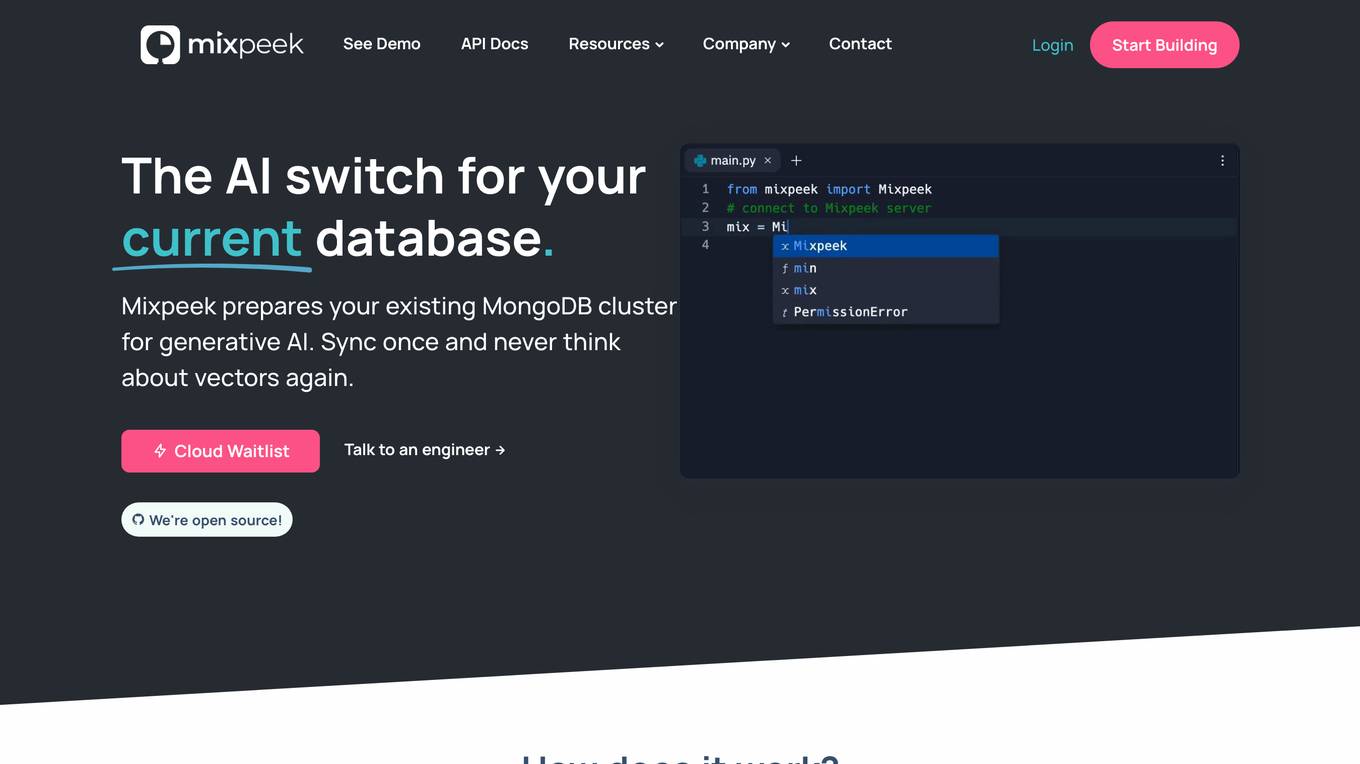
Mixpeek Solutions
Mixpeek Solutions offers a Multimodal Data Warehouse for Developers, providing a Developer-First API for AI-native Content Understanding. The platform allows users to search, monitor, classify, and cluster unstructured data like video, audio, images, and documents. Mixpeek Solutions offers a range of features including Unified Search, Automated Classification, Unsupervised Clustering, Feature Extractors for Every Data Type, and various specialized extraction models for different data types. The platform caters to a wide range of industries and provides seamless model upgrades, cross-model compatibility, A/B testing infrastructure, and simplified model management.

Ceacle Pipeline
Ceacle Pipeline is an AI-powered platform designed to streamline content creation workflows by offering automated tools for creating product mockups, scenes, and managing accounts efficiently. The platform leverages AI technology to help users automate tasks, save time, and focus on core activities. With Ceacle Pipeline, users can easily create custom workflows, generate inspiration boards, resize images, classify images for e-commerce, vectorize images, smart resize images for social media, and upscale, convert, and compress images. The platform aims to simplify content creation processes and enhance productivity for creators, designers, photographers, and digital marketers.
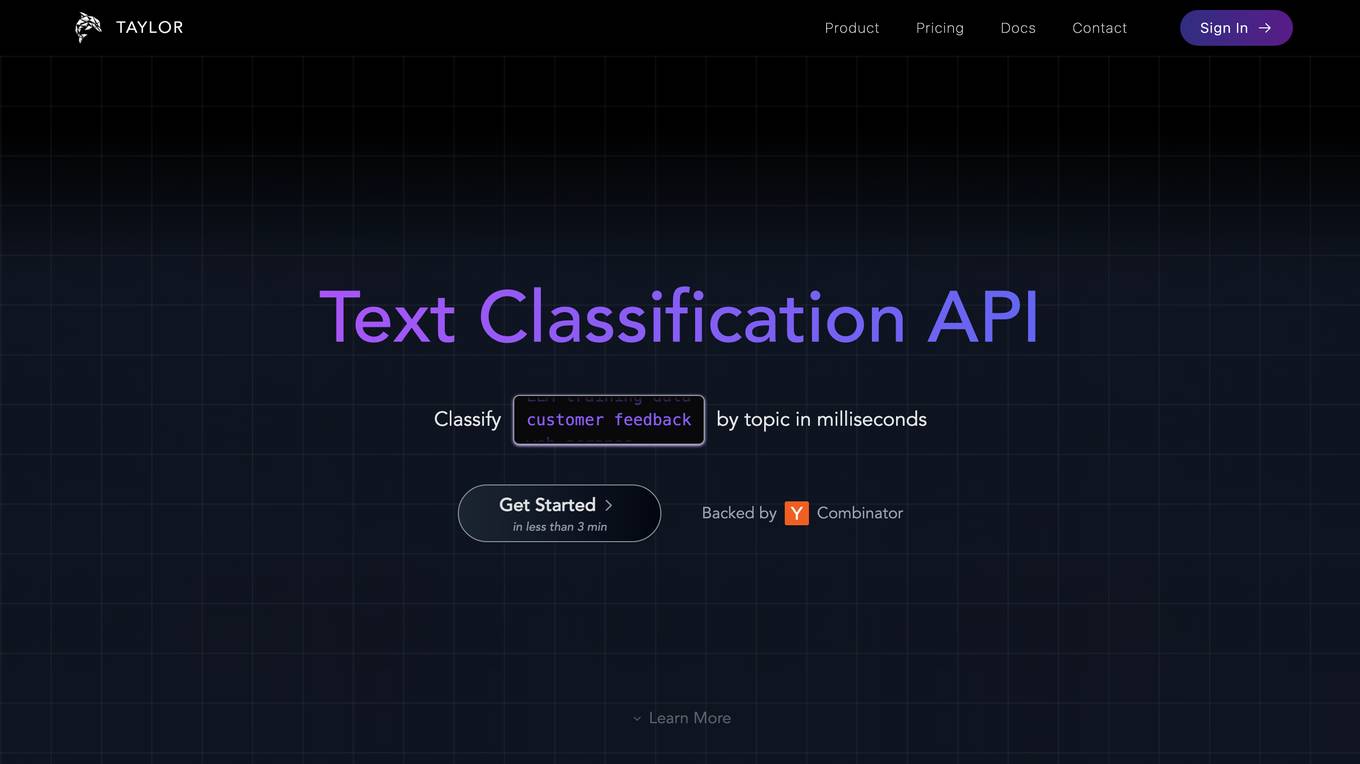
Taylor
Taylor is a deterministic AI tool that empowers Business & Engineering teams to enhance data at scale through bulk classification. It offers a Control Panel for Text Enrichment, enabling users to structure freeform text, enrich metadata, and customize enrichments according to their needs. Taylor's high impact, easy-to-use platform allows for total control over classification and extraction models, driving business impact from day one. With powerful integrations and the ability to integrate with various tools, Taylor simplifies the process of wrangling unstructured text data.

FranzAI LLM Playground
FranzAI LLM Playground is an AI-powered tool that helps you extract, classify, and analyze unstructured text data. It leverages transformer models to provide accurate and meaningful results, enabling you to build data applications faster and more efficiently. With FranzAI, you can accelerate product and content classification, enhance data interpretation, and advance data extraction processes, unlocking key insights from your textual data.
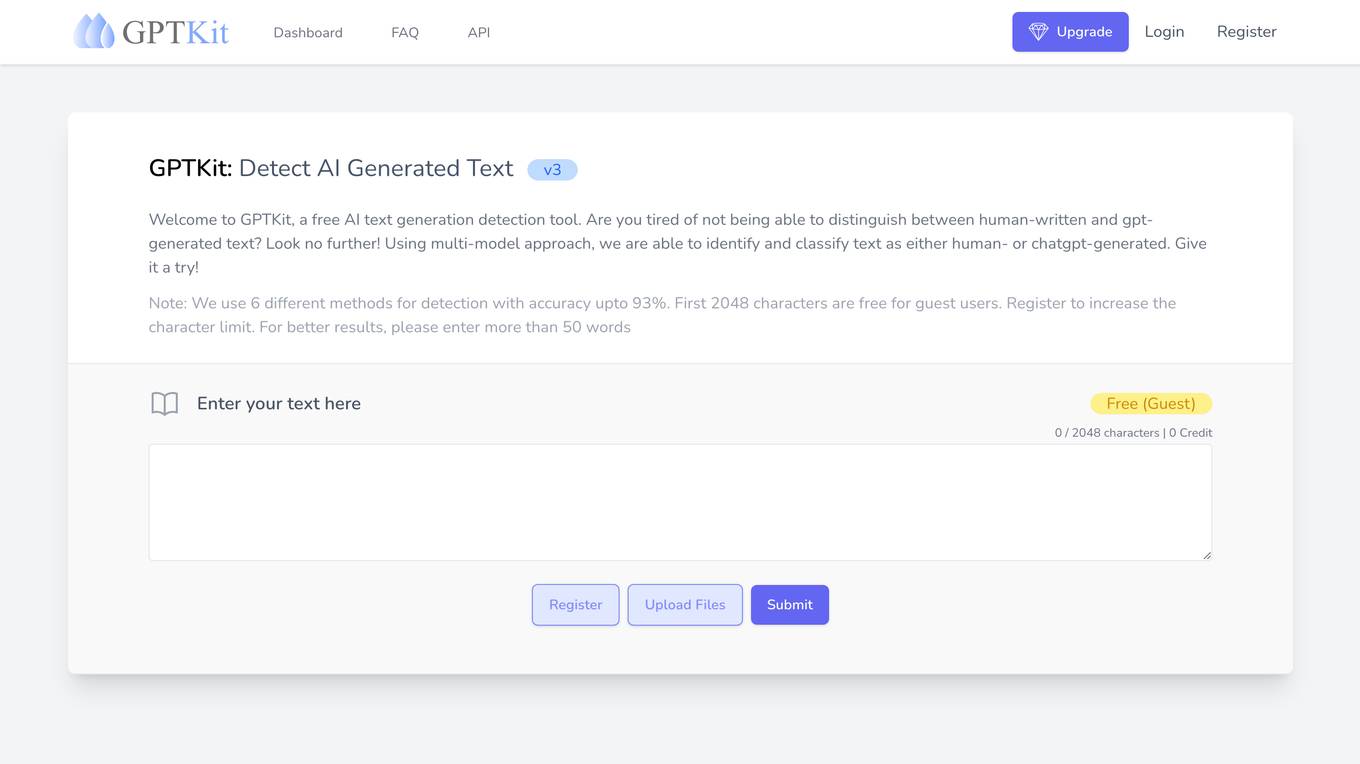
GPTKit
GPTKit is a free AI text generation detection tool that utilizes six different AI-based content detection techniques to identify and classify text as either human- or AI-generated. It provides reports on the authenticity and reality of the analyzed content, with an accuracy of approximately 93%. The first 2048 characters in every request are free, and users can register for free to get 2048 characters/request.

CategorAIze.io
CategorAIze.io is an AI-powered tool that helps users categorize data effortlessly using the latest AI technologies. Users can define custom categories, upload data items, and let the cutting-edge LLM AI automatically assign entries based on their content without the need for pretraining. The tool supports multi-level hierarchies, text and image-based categorization, and offers pay-as-you-go pricing options. Additionally, users can access the tool via browser, API, and plugins for a seamless experience.
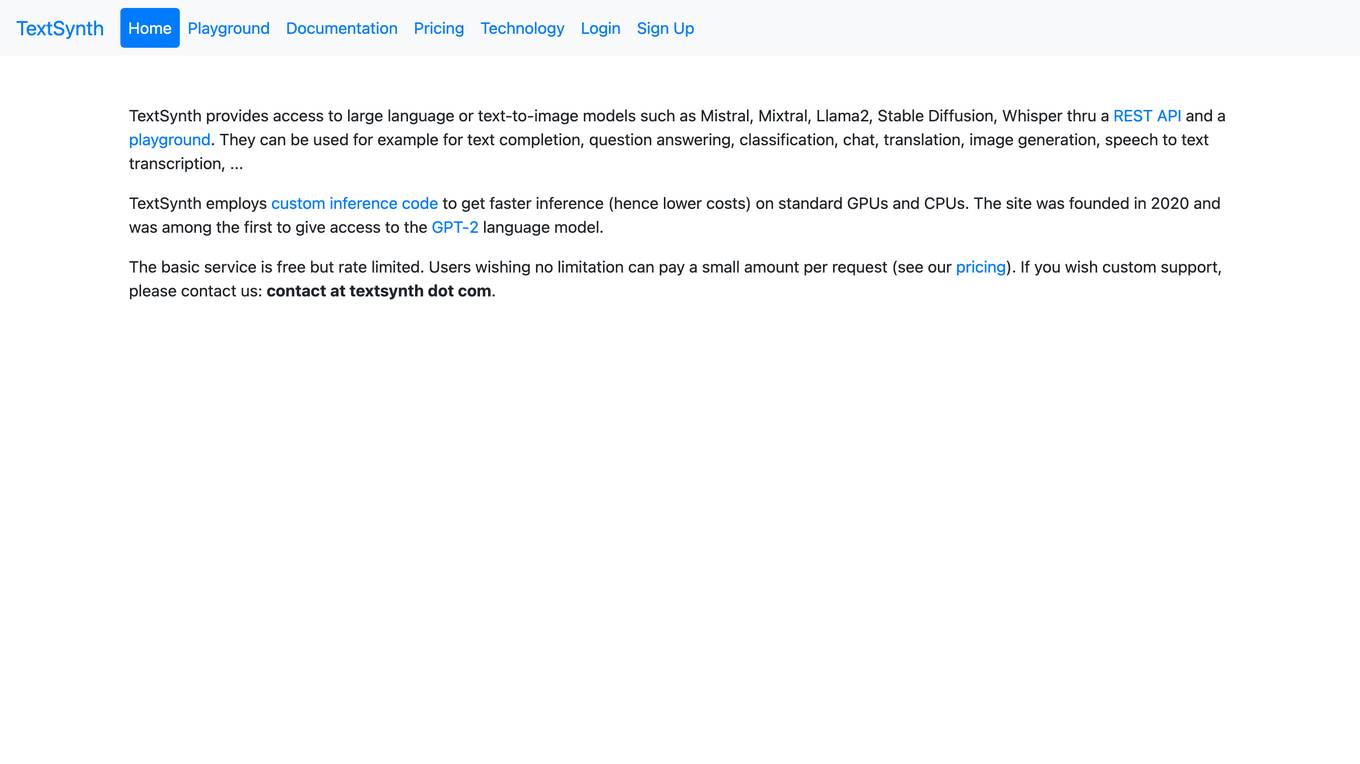
TextSynth
TextSynth is an AI tool that provides access to large language models such as Mistral, Llama, Stable Diffusion, Whisper for text-to-image, text-to-speech, and speech-to-text capabilities via a REST API and a playground. It employs custom inference code for faster inference on standard GPUs and CPUs. Founded in 2020, TextSynth was among the first to offer access to the GPT-2 language model. The service is free with rate limitations, but users can opt for unlimited access by paying a small fee per request. All servers are located in France.
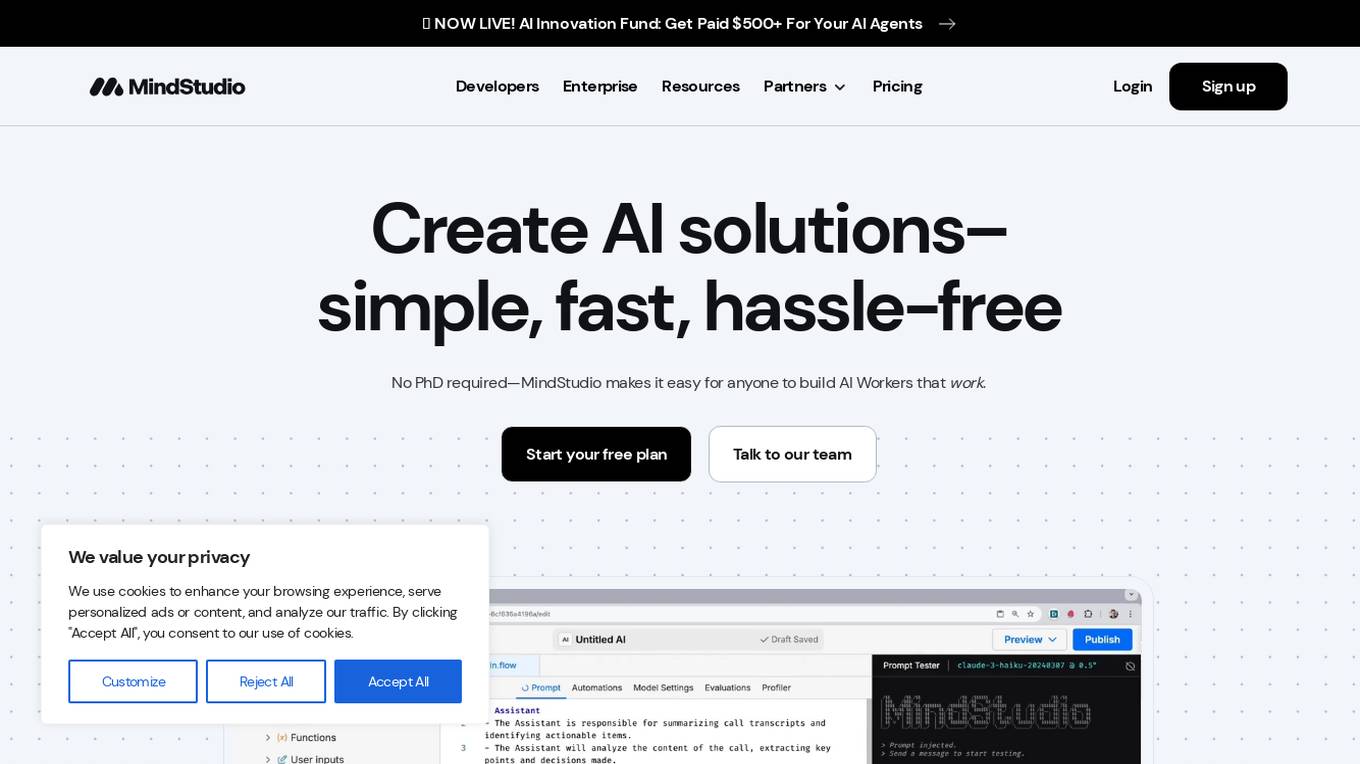
MindStudio
MindStudio is an AI application that allows users to create AI Workers for various tasks without the need for a PhD. It offers a simple and fast solution for building AI solutions, enabling users to automate tasks such as content translation, customer message enrichment, comment moderation, and more. With over 100,000 AI Workers in use, MindStudio provides a user-friendly platform to experiment with different AI models, optimize workflows, and connect to various applications seamlessly.
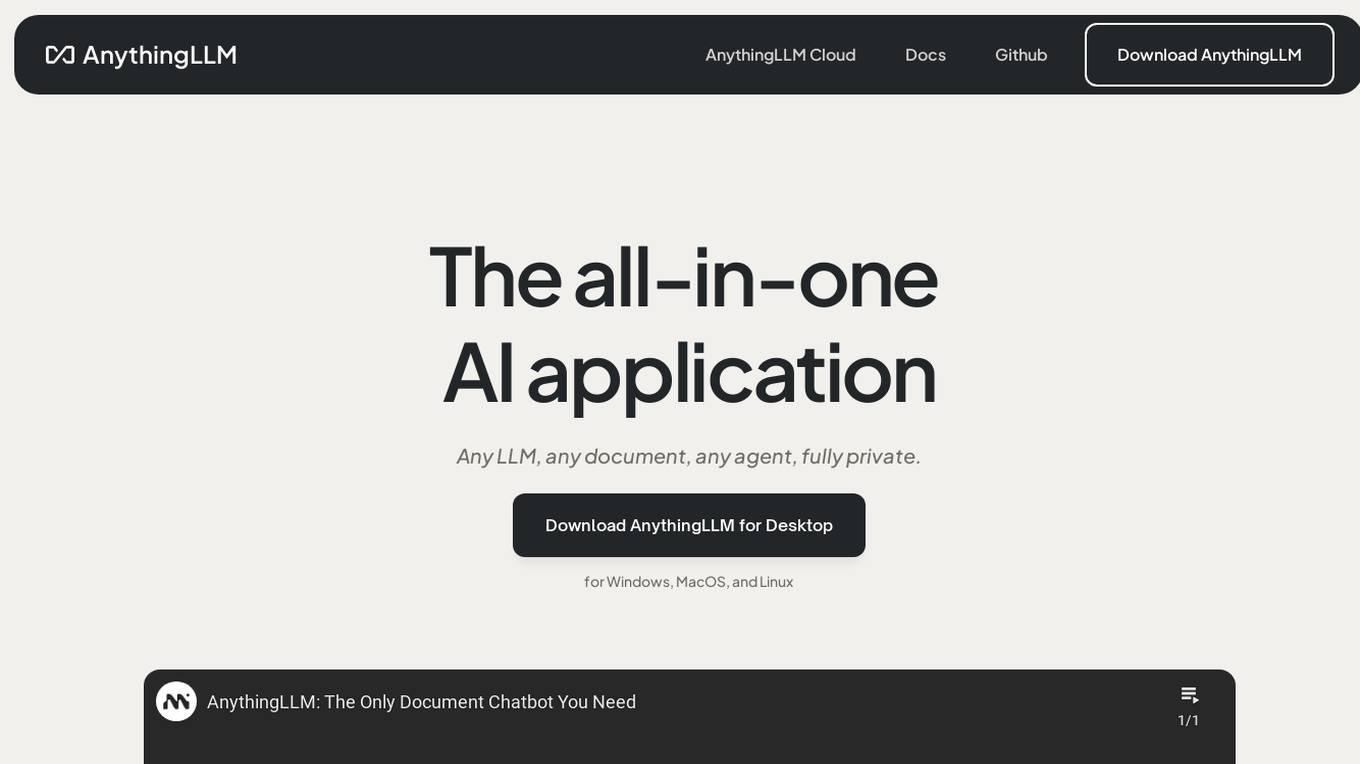
AnythingLLM
AnythingLLM is an all-in-one AI application designed for everyone. It offers a suite of tools for working with LLM (Large Language Models), documents, and agents in a fully private environment. Users can install AnythingLLM on their desktop for Windows, MacOS, and Linux, enabling flexible one-click installation and secure, fully private operation without internet connectivity. The application supports custom models, including enterprise models like GPT-4, custom fine-tuned models, and open-source models like Llama and Mistral. AnythingLLM allows users to work with various document formats, such as PDFs and word documents, providing tailored solutions with locally running defaults for privacy.
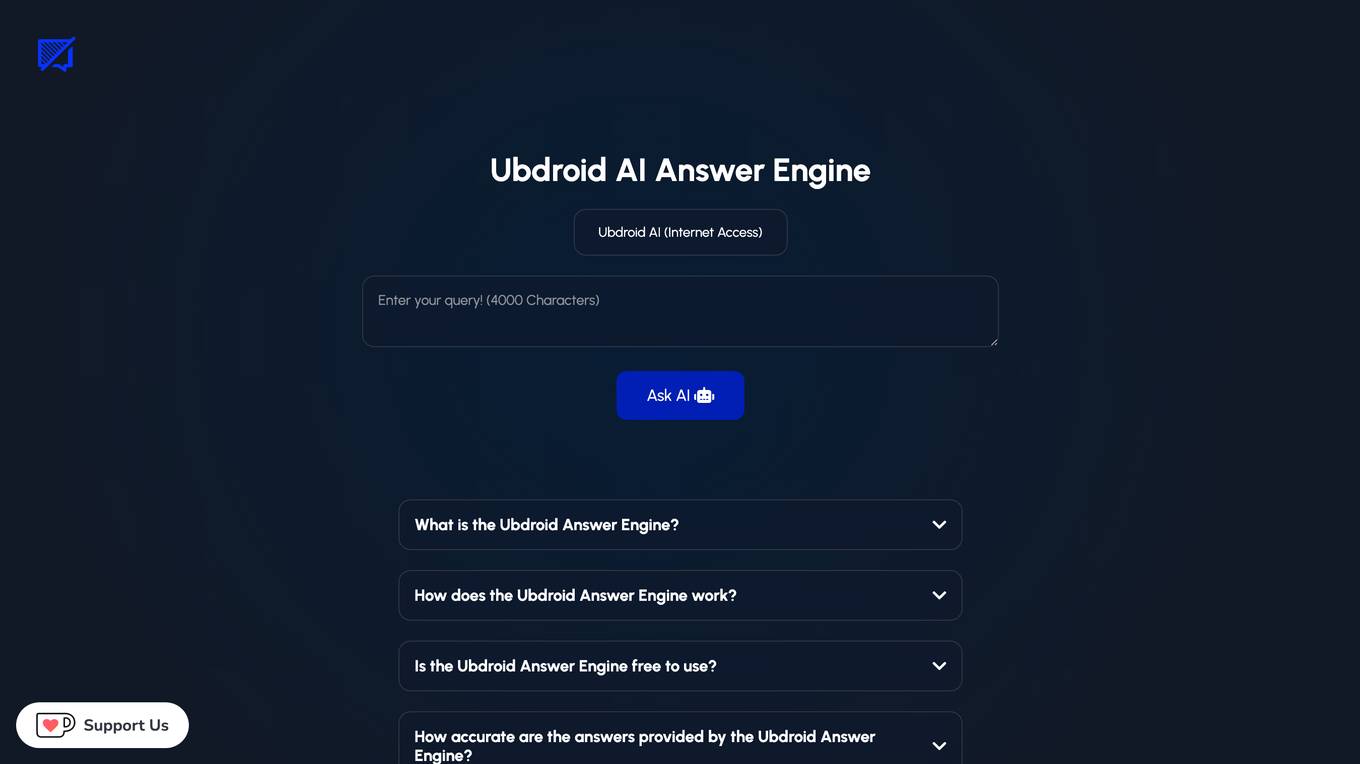
Ubdroid AI Answer Engine
Ubdroid AI Answer Engine is an AI-powered tool that utilizes various open-source LLMs to provide answers to user queries. It works by processing user queries and fetching relevant information from these LLMs. The accuracy of the answers depends on the quality and relevance of the data provided by the LLMs. The free version of the tool has a request limit of 10 requests per minute. If a model is not working, users can select another model.
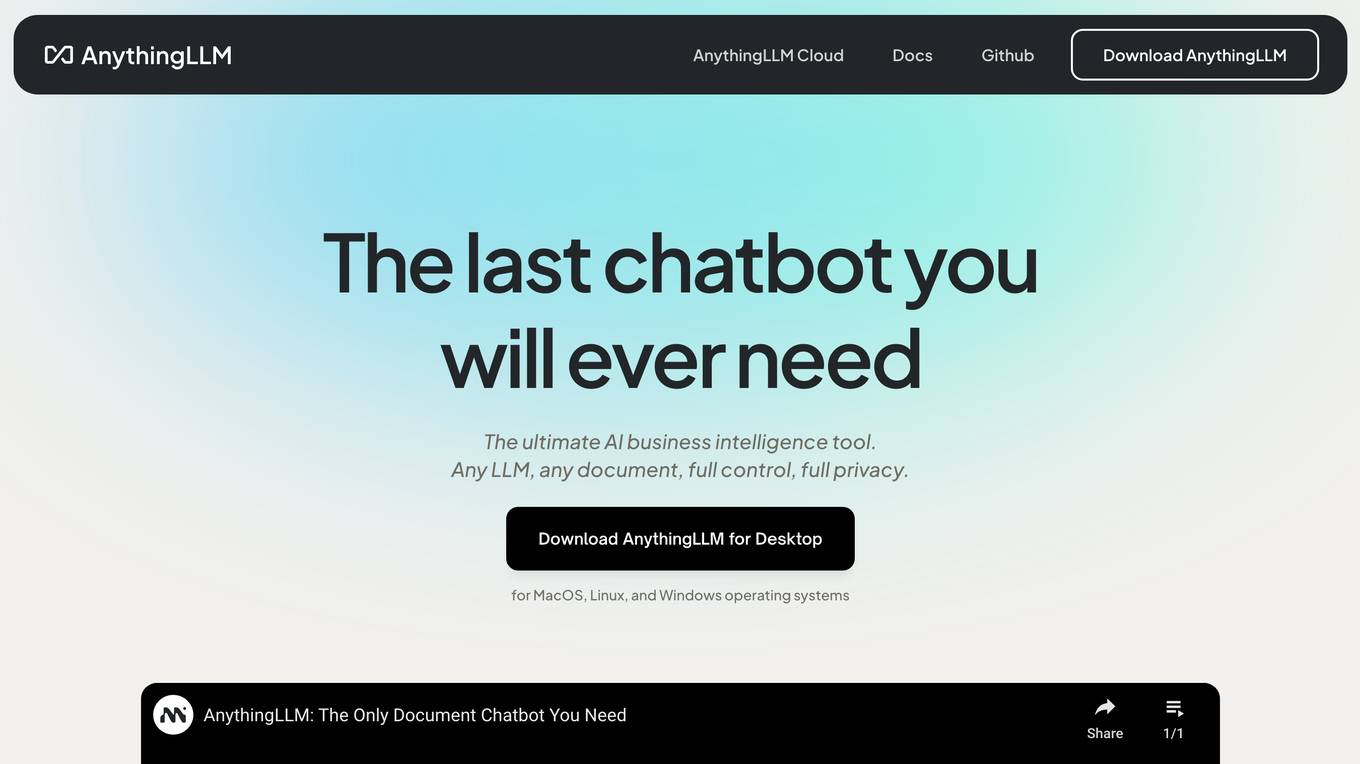
AnythingLLM
AnythingLLM is an all-in-one AI application designed for everyone. It offers a comprehensive suite of tools for working with LLMs (Large Language Models), documents, and agents in a fully private manner. Users can download AnythingLLM for Desktop on Windows, MacOS, and Linux, enabling flexible one-click installation. The application supports custom model integration, including closed-source models like GPT-4 and custom fine-tuned models like Llama2. With the ability to handle various document formats beyond PDFs, AnythingLLM provides tailored solutions with locally running defaults for privacy. Additionally, users can access AnythingLLM Cloud for extended functionalities.

PopularAiTools
PopularAiTools is a platform offering a variety of AI tools to assist users in various tasks. From data analysis to natural language processing, the website provides a range of tools to streamline processes and enhance productivity. Users can access cutting-edge AI technology without the need for advanced technical knowledge, making it suitable for both beginners and experts. With a user-friendly interface and reliable performance, PopularAiTools aims to simplify complex tasks and empower users to achieve their goals efficiently.
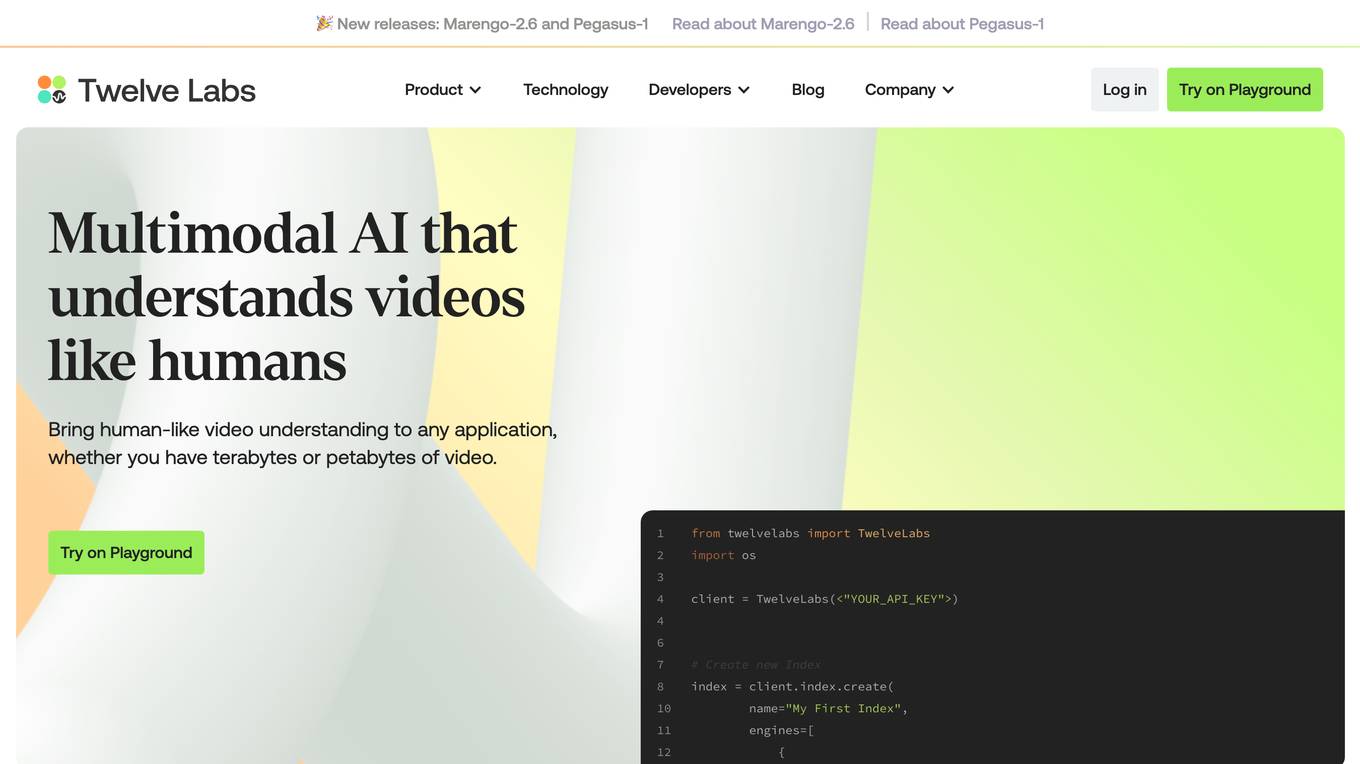
Twelve Labs
Twelve Labs is a cutting-edge AI tool that specializes in multimodal video understanding, allowing users to bring human-like video comprehension to any application. The tool enables users to search, generate, and embed video content with state-of-the-art accuracy and scalability. With the ability to handle vast video libraries and provide rich video embeddings, Twelve Labs is a game-changer in the field of video analysis and content creation.
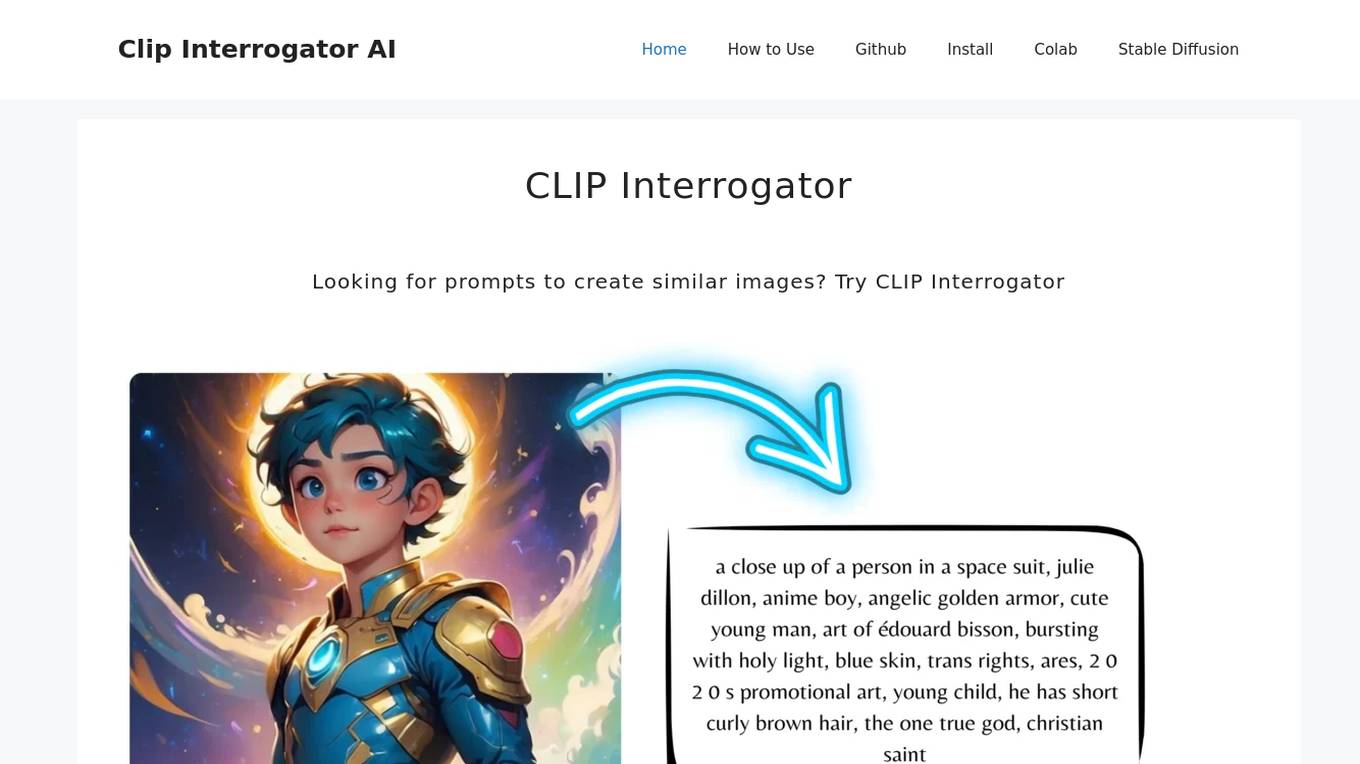
CLIP Interrogator
CLIP Interrogator is a tool that uses the CLIP (Contrastive Language–Image Pre-training) model to analyze images and generate descriptive text or tags. It effectively bridges the gap between visual content and language by interpreting the contents of images through natural language descriptions. The tool is particularly useful for understanding or replicating the style and content of existing images, as it helps in identifying key elements and suggesting prompts for creating similar imagery.
1 - Open Source AI Tools

classifai
Supercharge WordPress Content Workflows and Engagement with Artificial Intelligence. Tap into leading cloud-based services like OpenAI, Microsoft Azure AI, Google Gemini and IBM Watson to augment your WordPress-powered websites. Publish content faster while improving SEO performance and increasing audience engagement. ClassifAI integrates Artificial Intelligence and Machine Learning technologies to lighten your workload and eliminate tedious tasks, giving you more time to create original content that matters.
20 - OpenAI Gpts
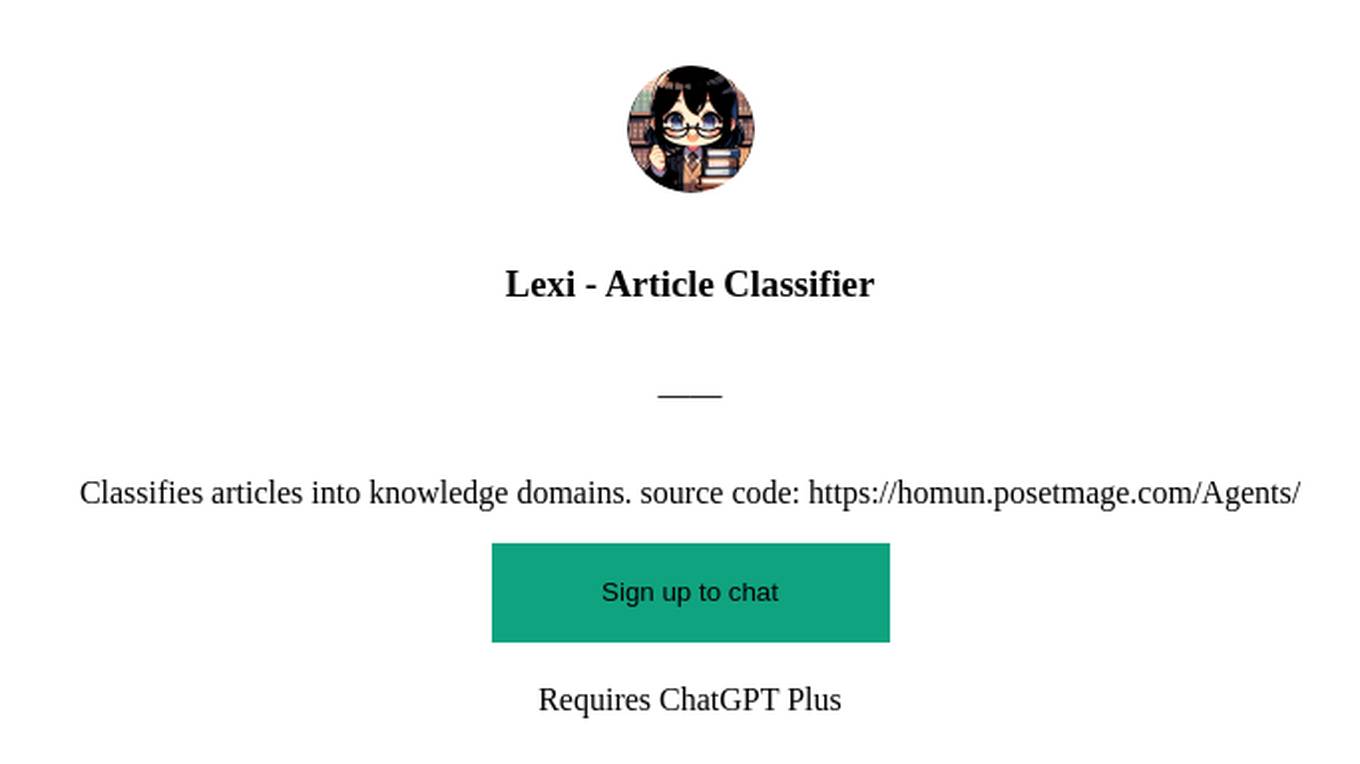
Lexi - Article Classifier
Classifies articles into knowledge domains. source code: https://homun.posetmage.com/Agents/
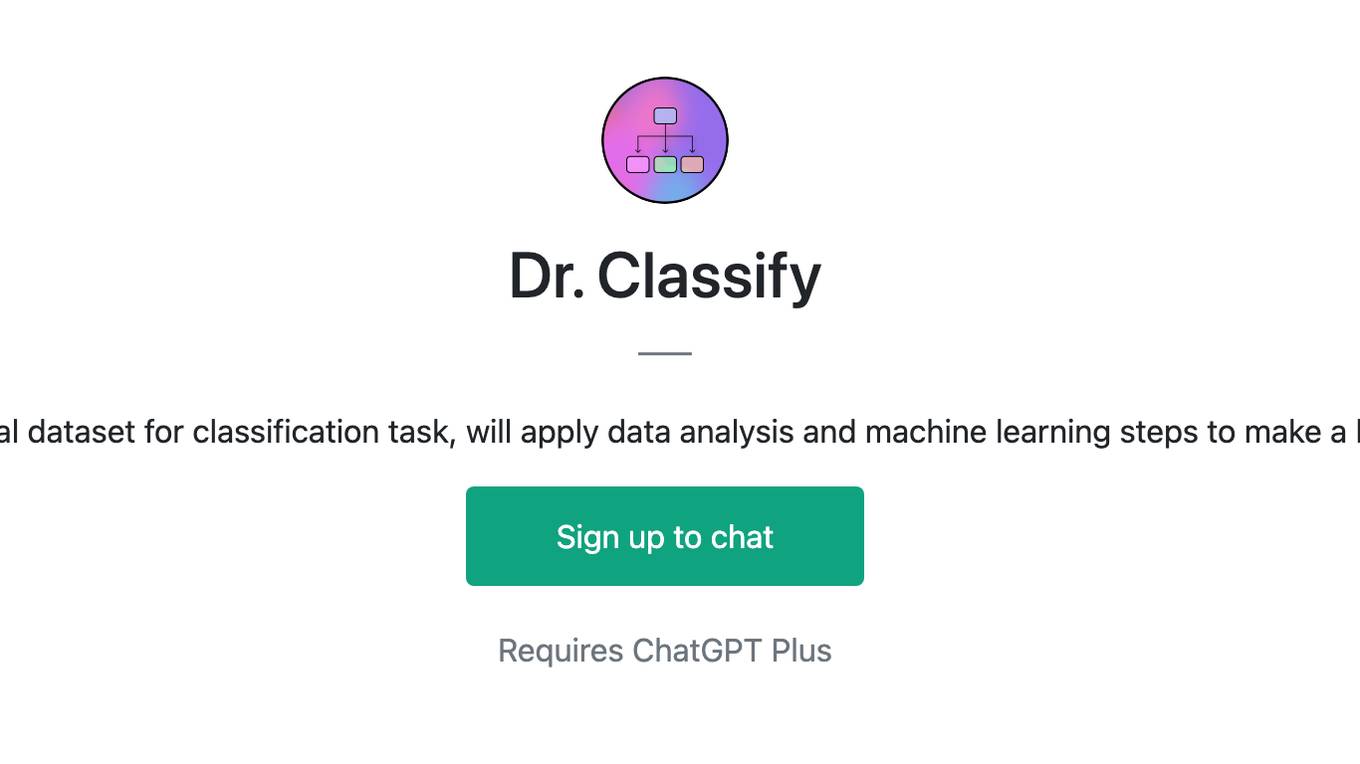
Dr. Classify
Just upload a numerical dataset for classification task, will apply data analysis and machine learning steps to make a best model possible.
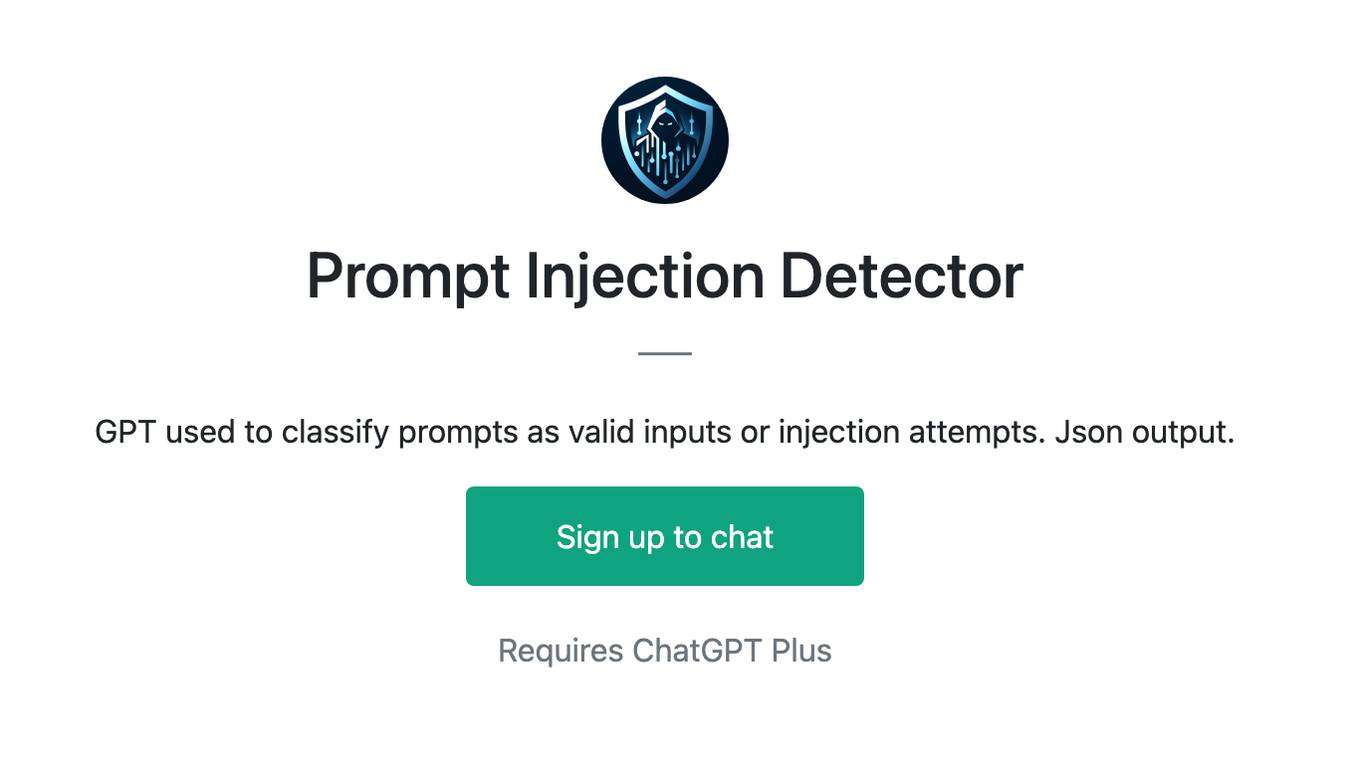
Prompt Injection Detector
GPT used to classify prompts as valid inputs or injection attempts. Json output.
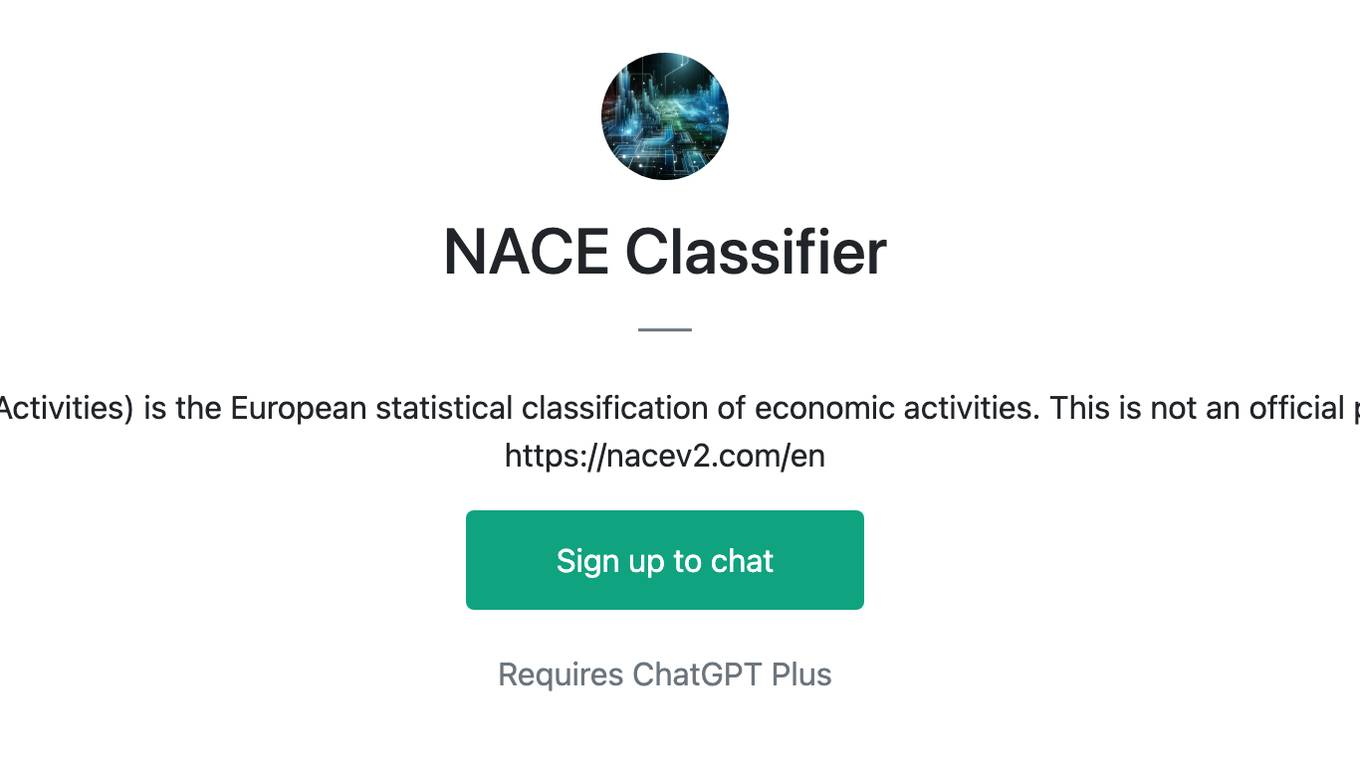
NACE Classifier
NACE (Nomenclature of Economic Activities) is the European statistical classification of economic activities. This is not an official product. Official information here: https://nacev2.com/en
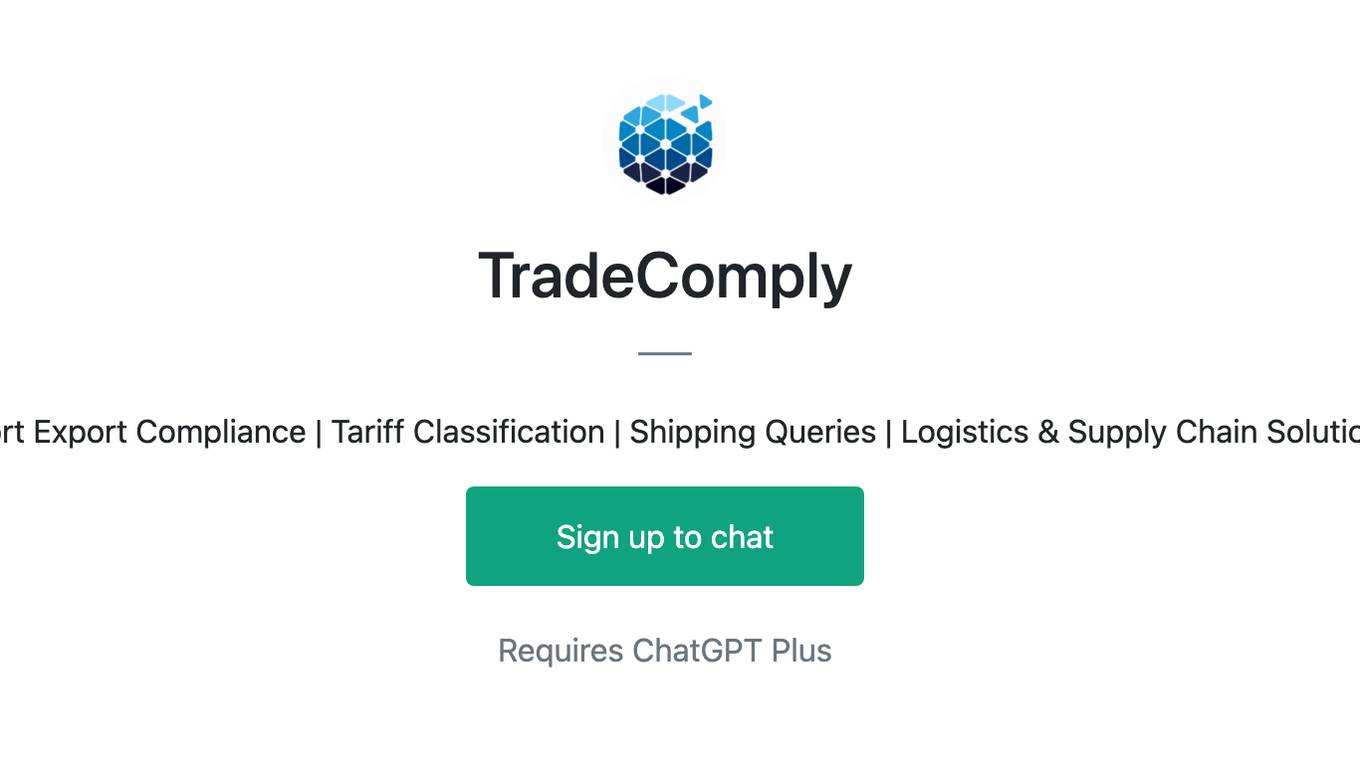
TradeComply
Import Export Compliance | Tariff Classification | Shipping Queries | Logistics & Supply Chain Solutions
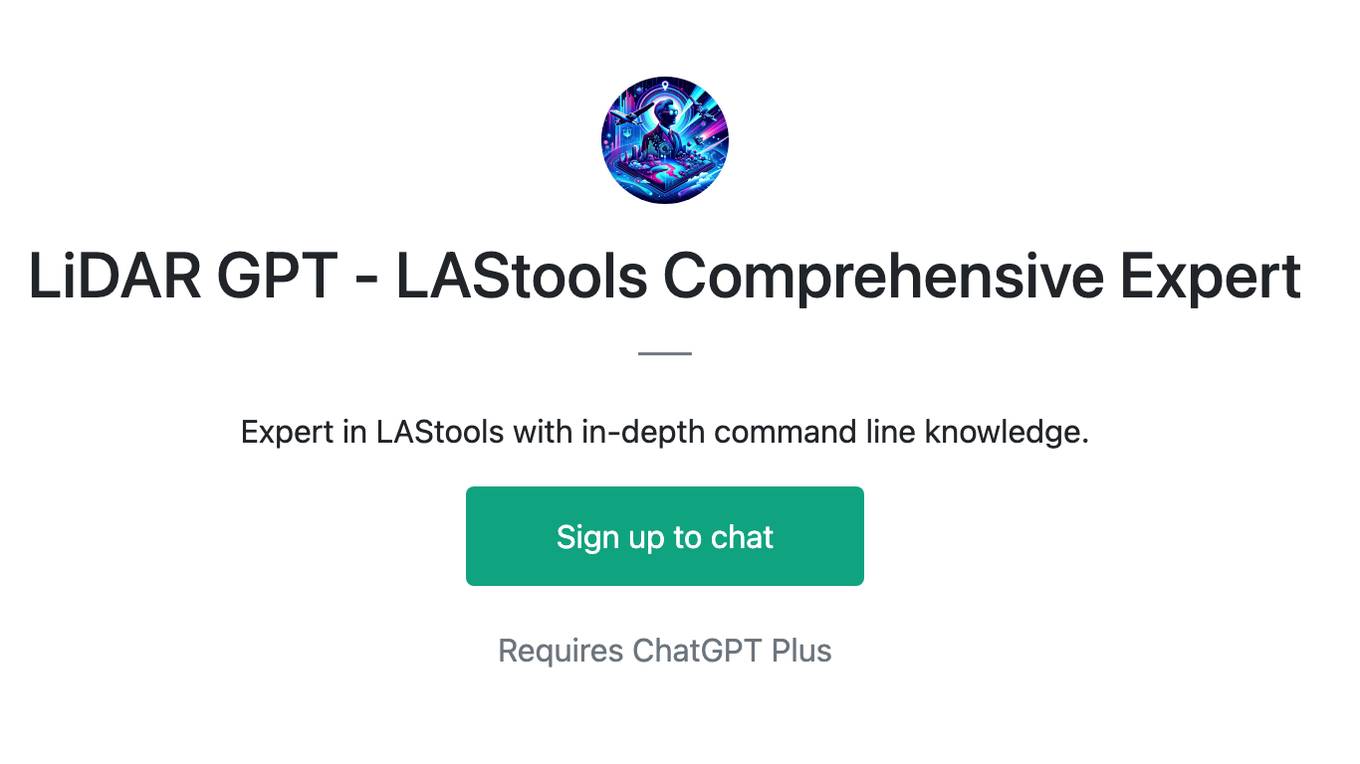
LiDAR GPT - LAStools Comprehensive Expert
Expert in LAStools with in-depth command line knowledge.
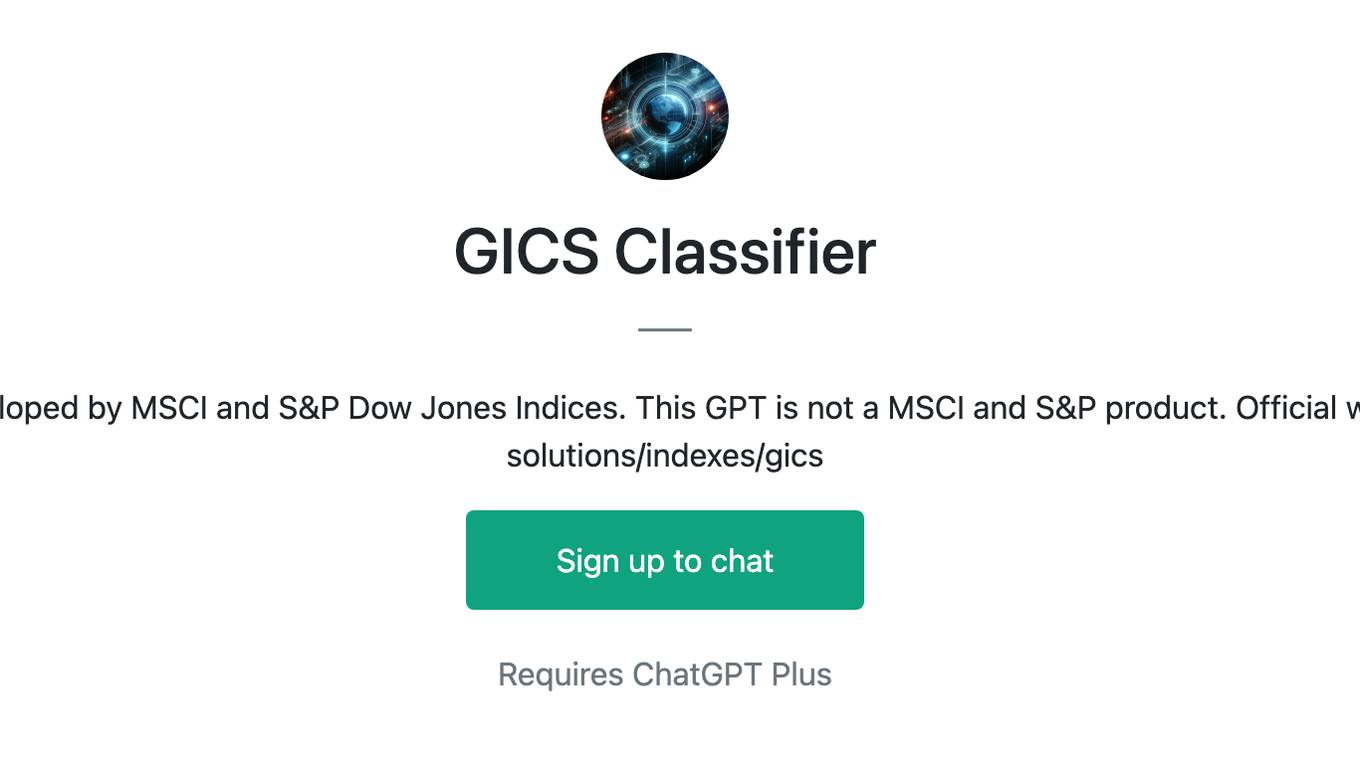
GICS Classifier
GICS is a classification standard developed by MSCI and S&P Dow Jones Indices. This GPT is not a MSCI and S&P product. Official website : https://www.msci.com/our-solutions/indexes/gics
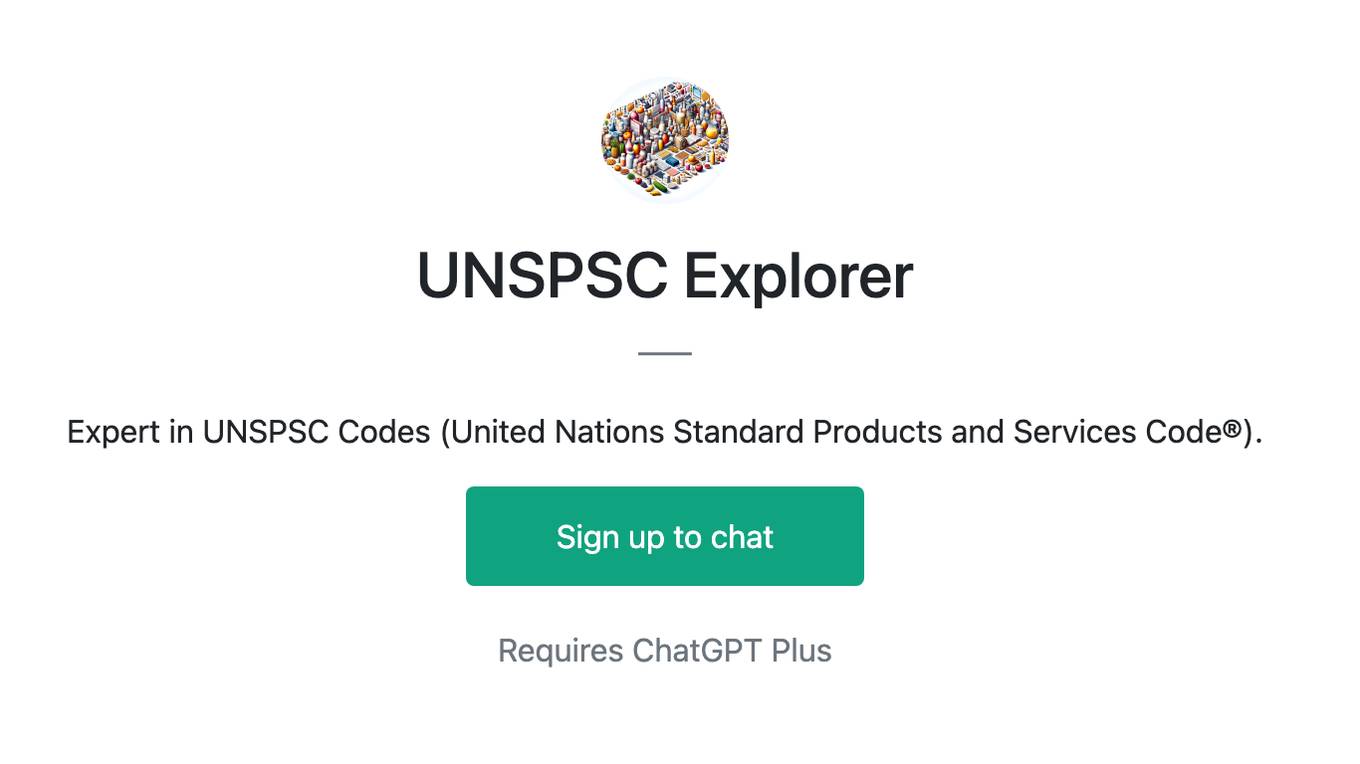
UNSPSC Explorer
Expert in UNSPSC Codes (United Nations Standard Products and Services Code®).
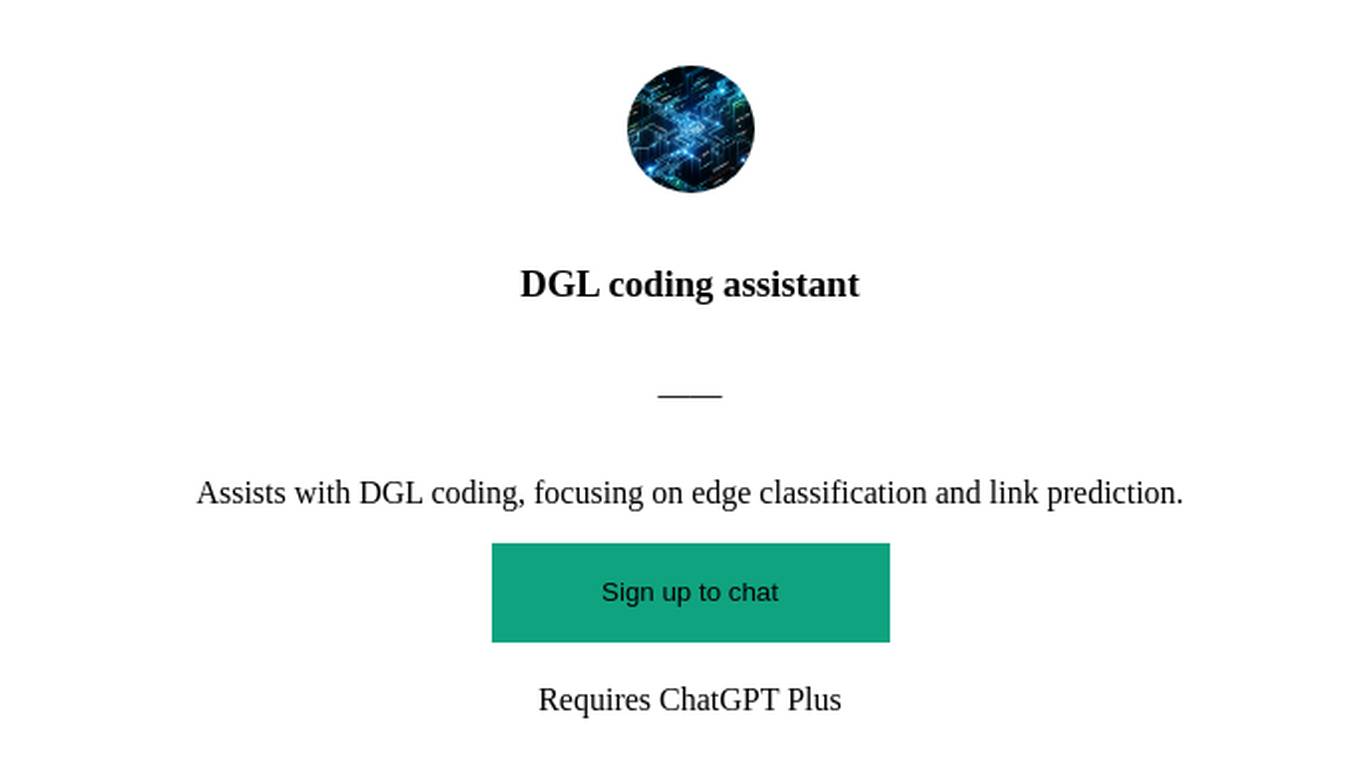
DGL coding assistant
Assists with DGL coding, focusing on edge classification and link prediction.
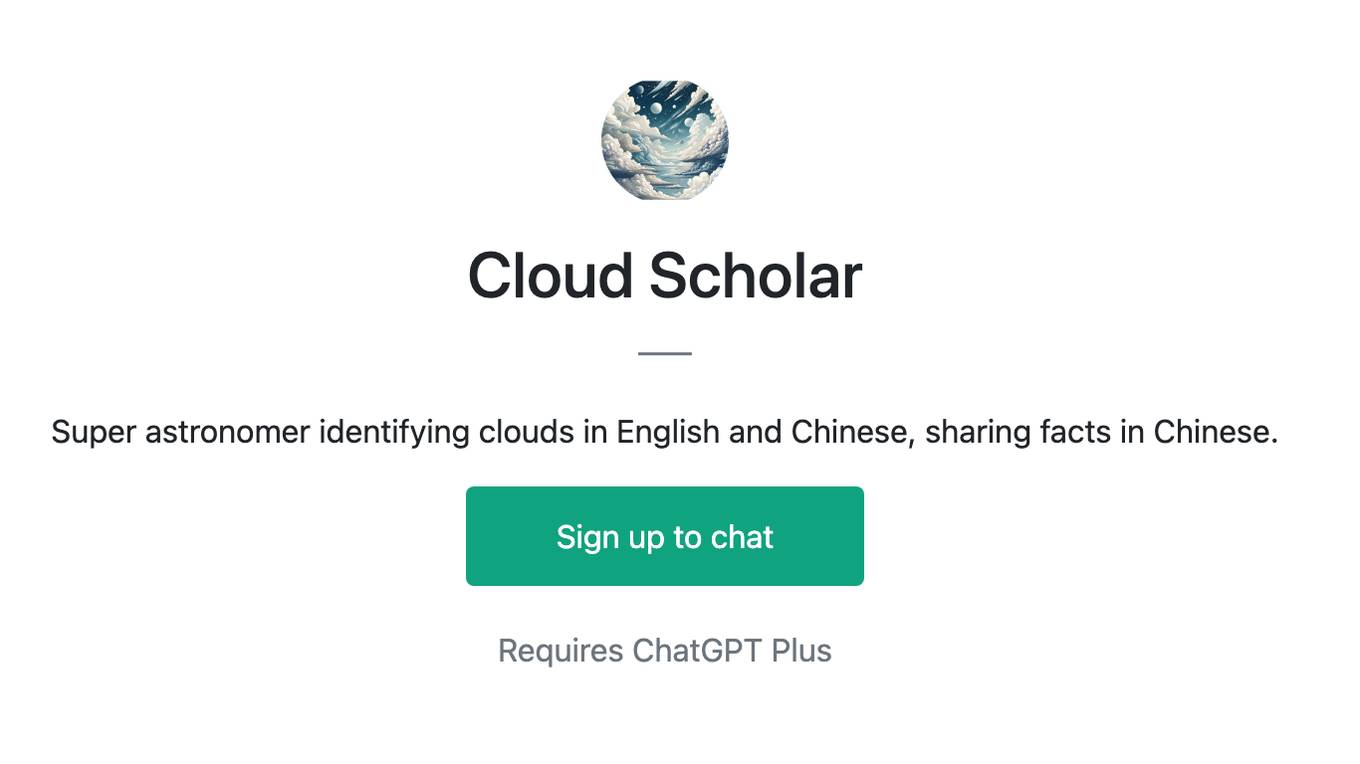
Cloud Scholar
Super astronomer identifying clouds in English and Chinese, sharing facts in Chinese.
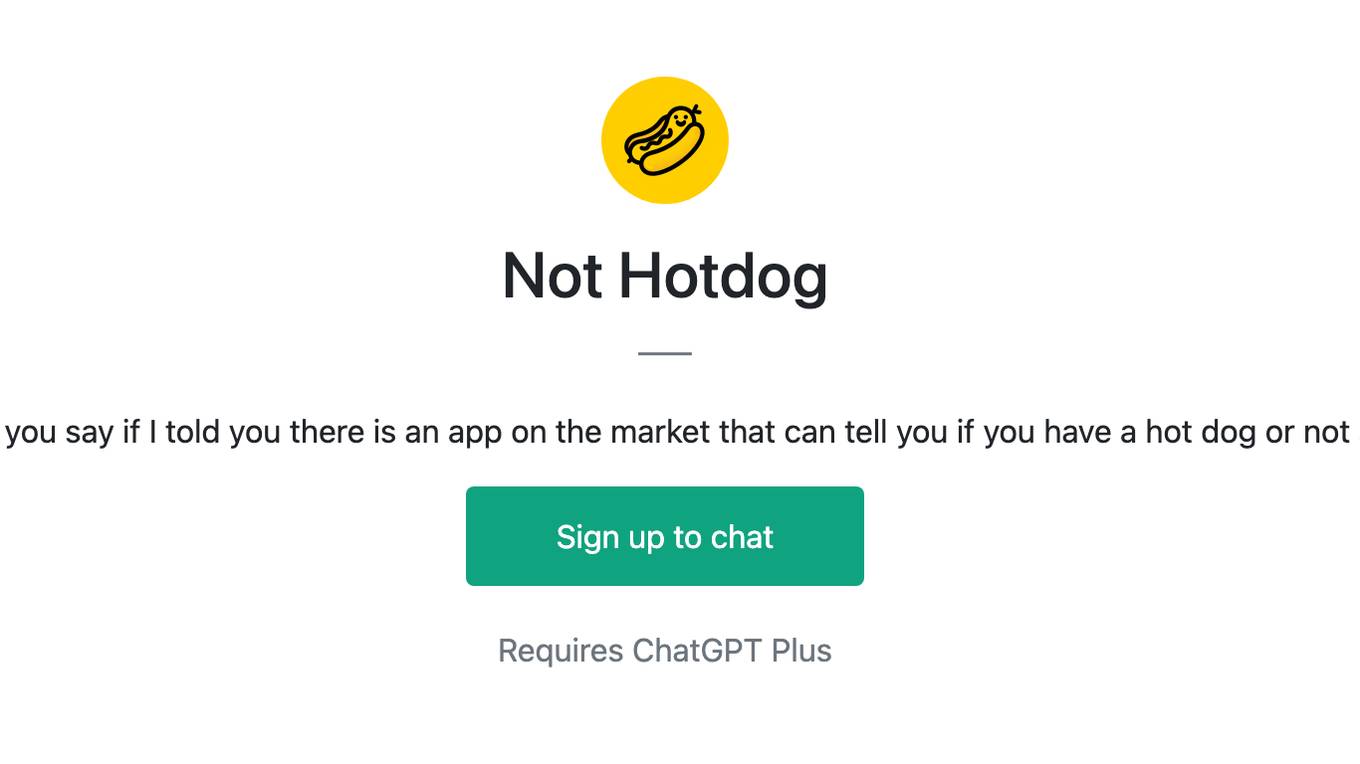
Not Hotdog
What would you say if I told you there is an app on the market that can tell you if you have a hot dog or not a hot dog.
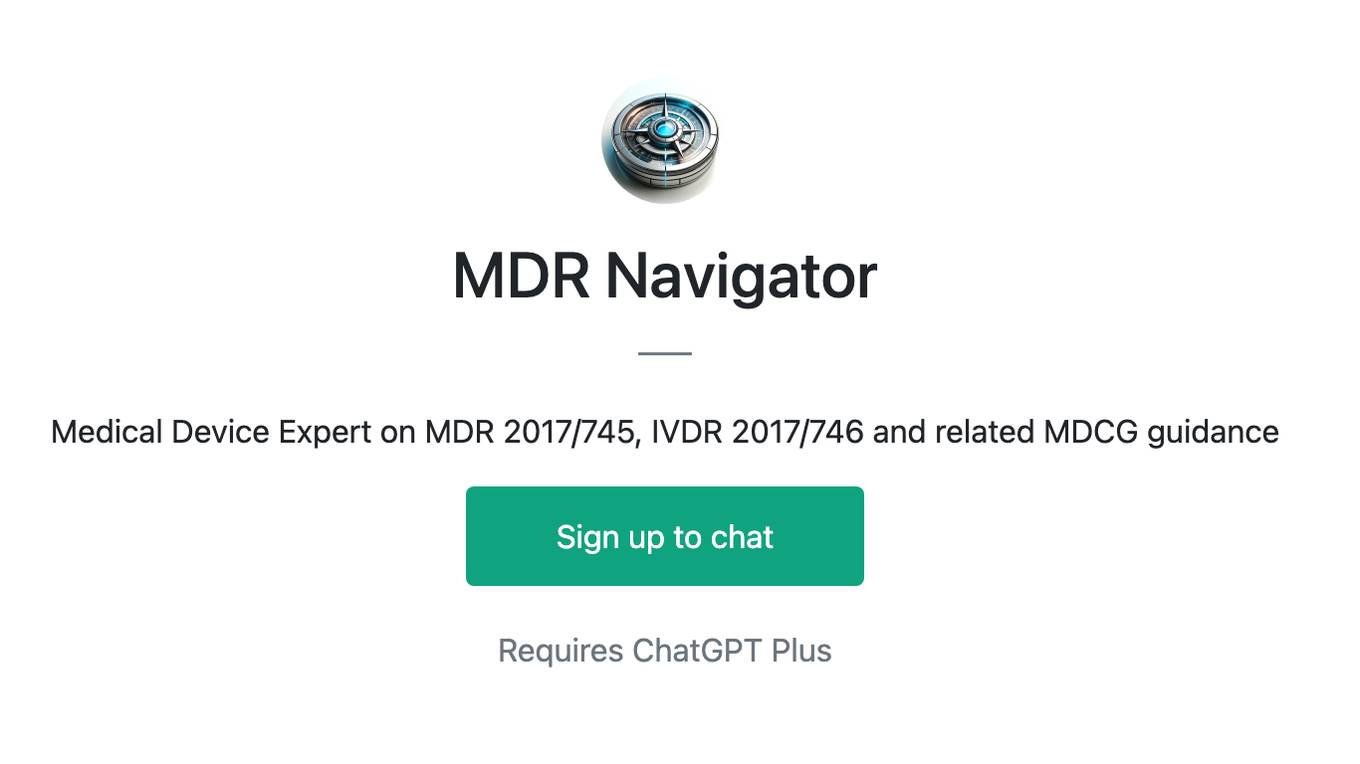
MDR Navigator
Medical Device Expert on MDR 2017/745, IVDR 2017/746 and related MDCG guidance
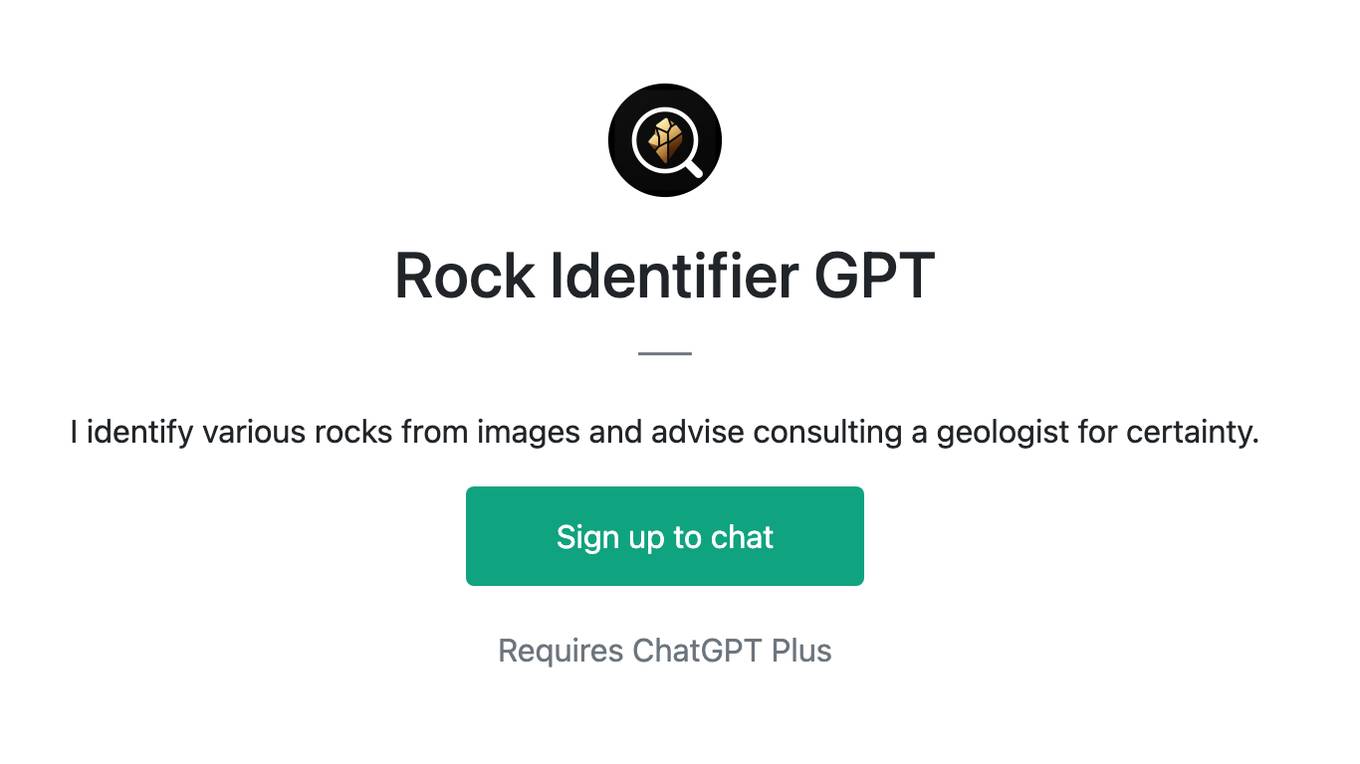
Rock Identifier GPT
I identify various rocks from images and advise consulting a geologist for certainty.
